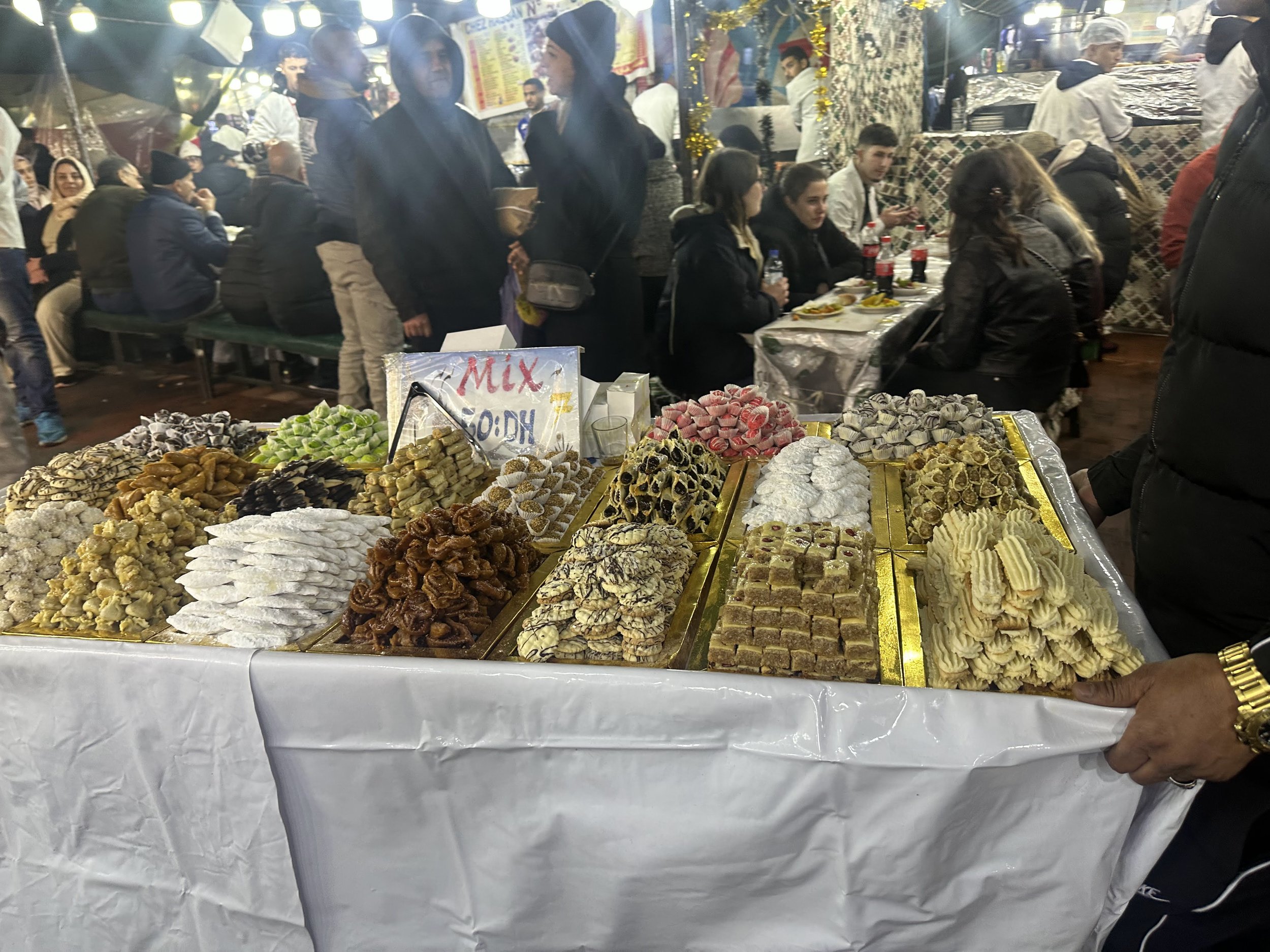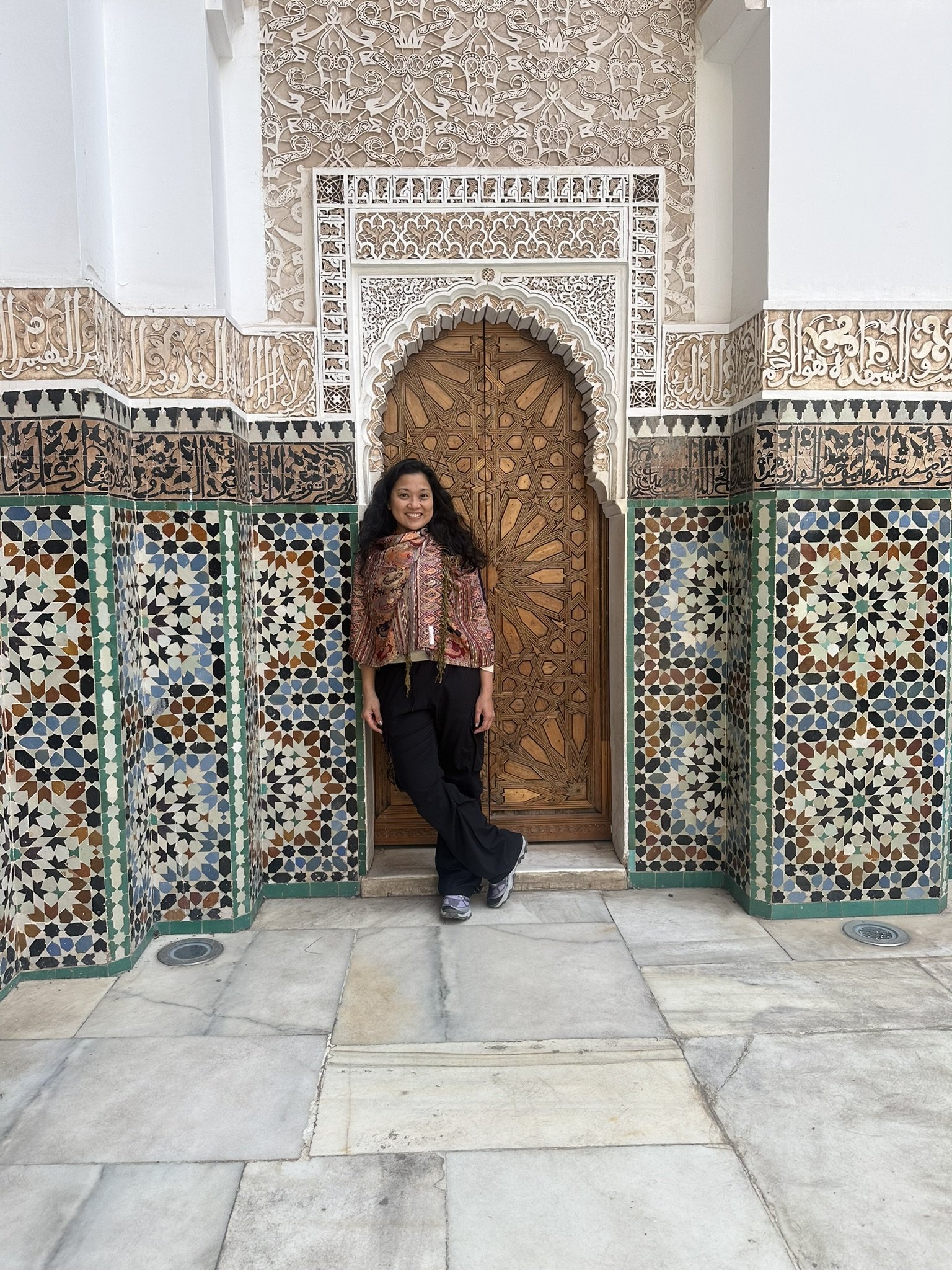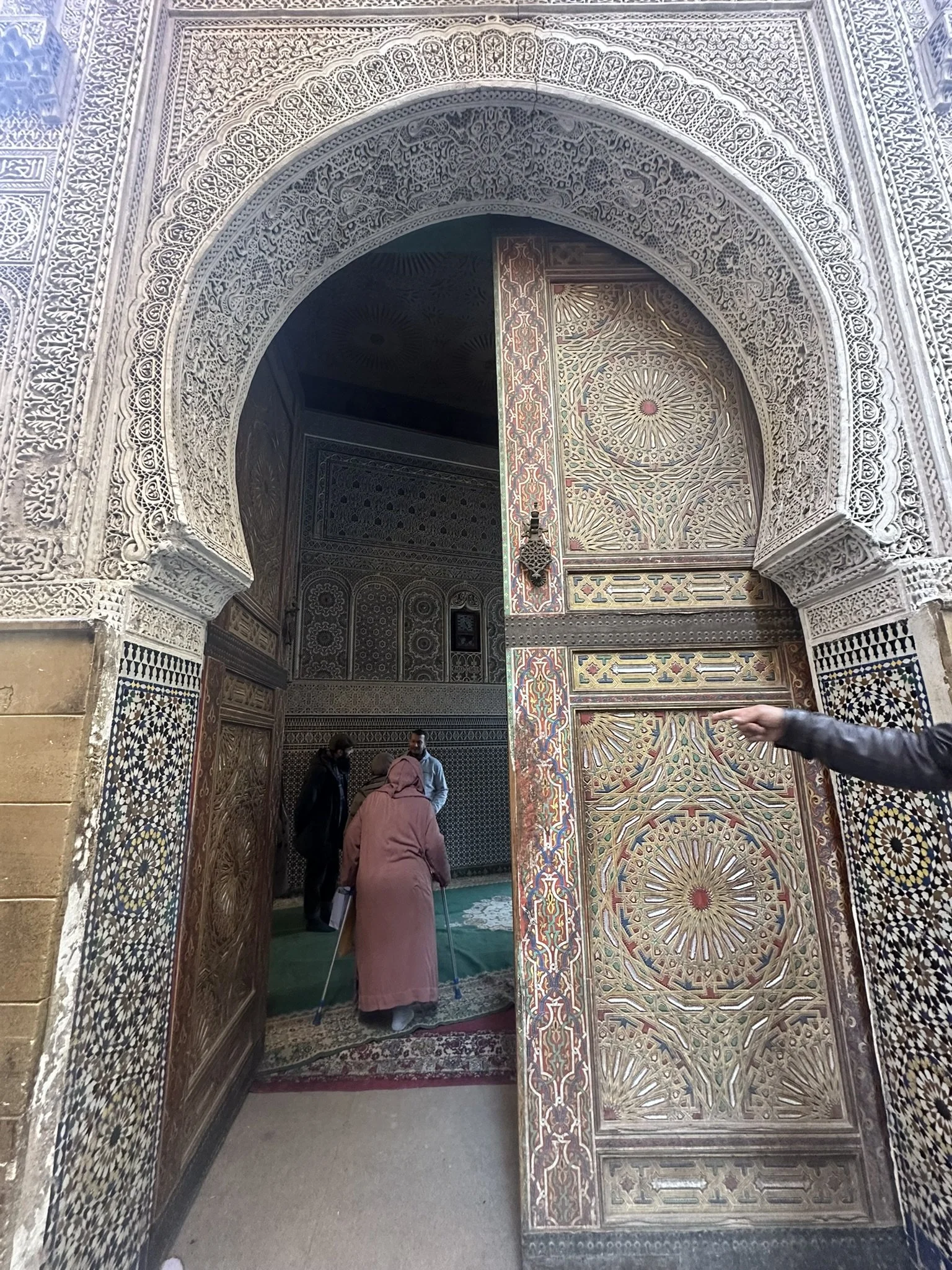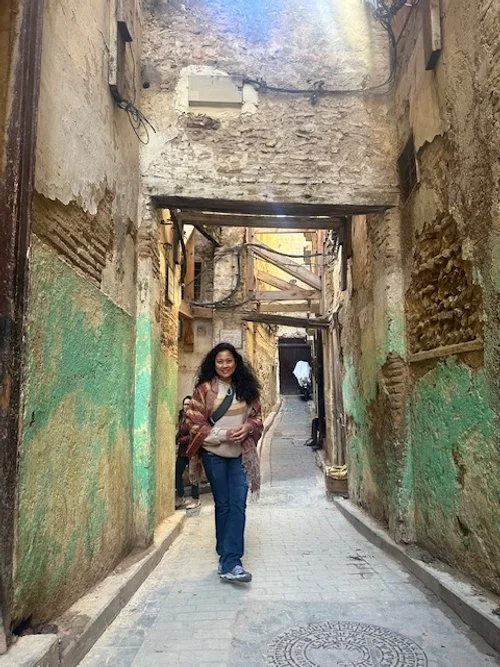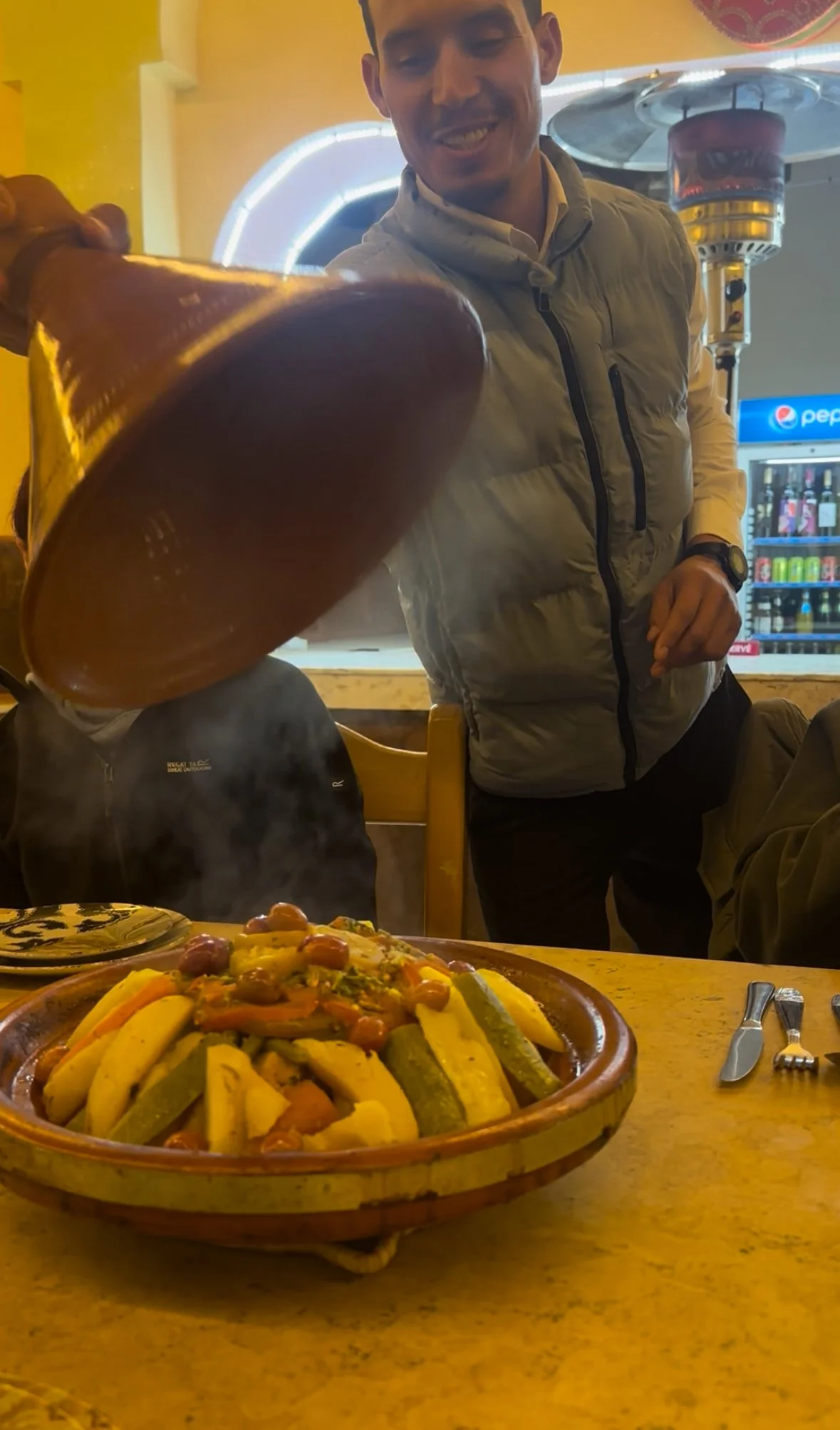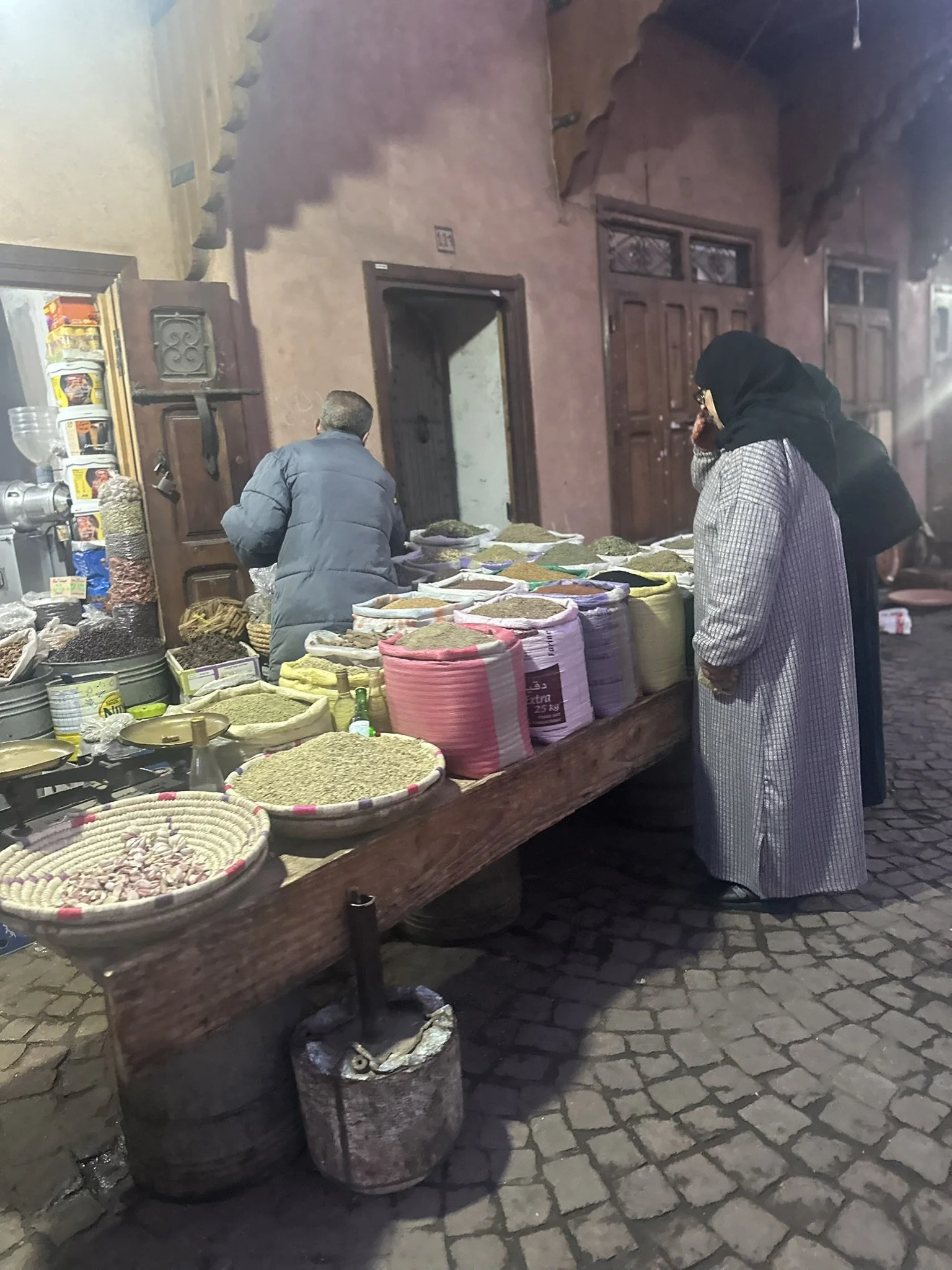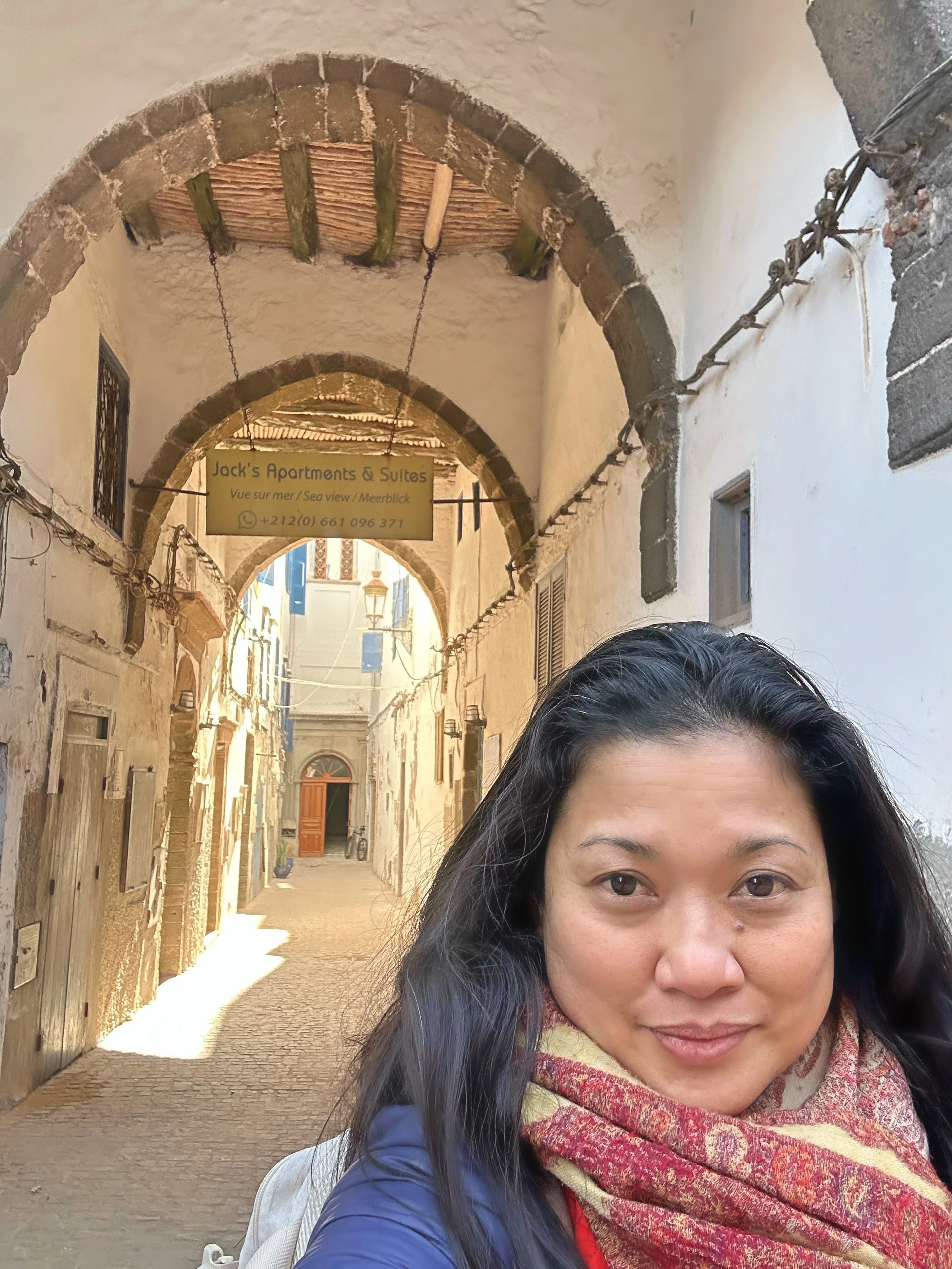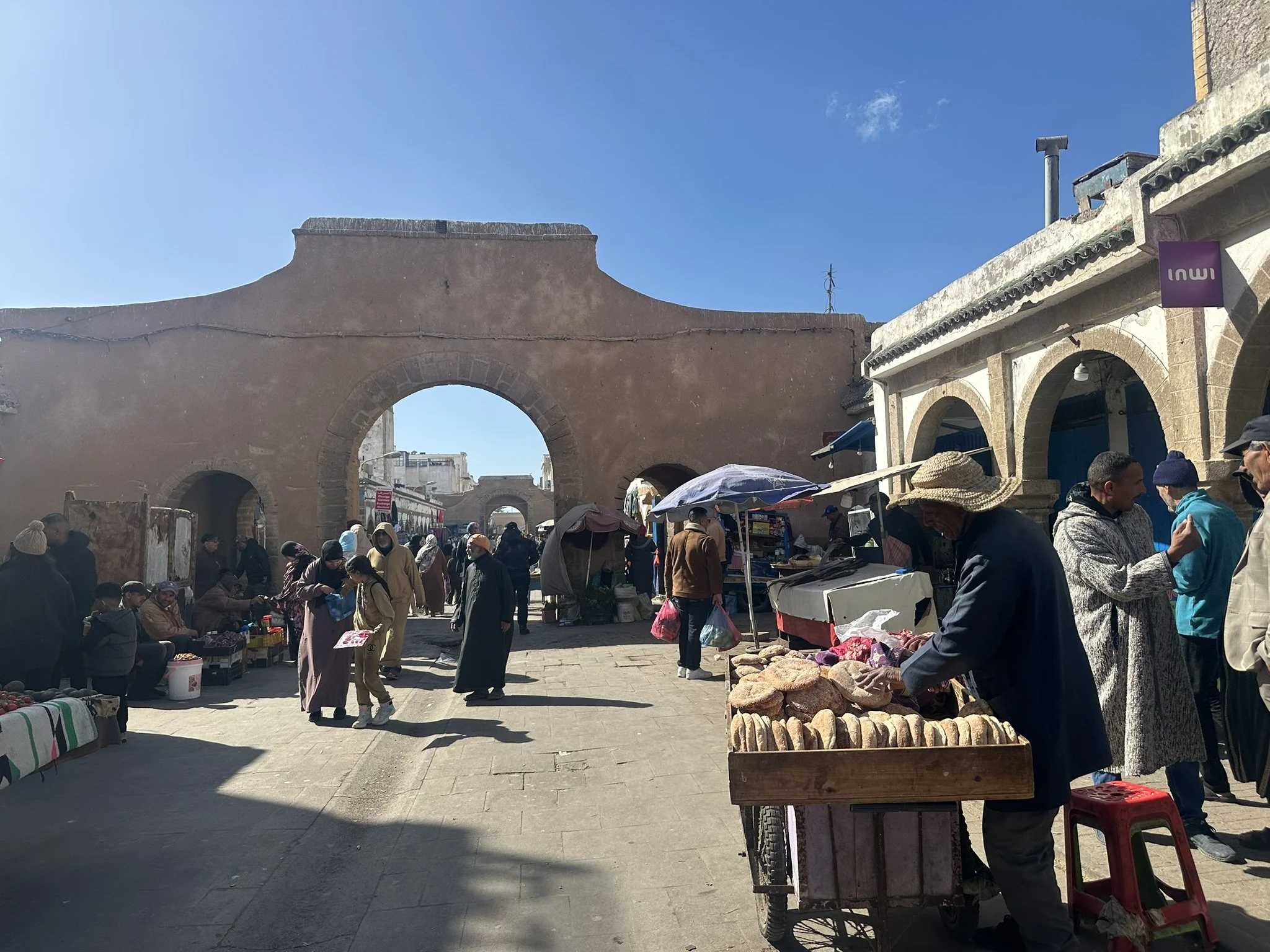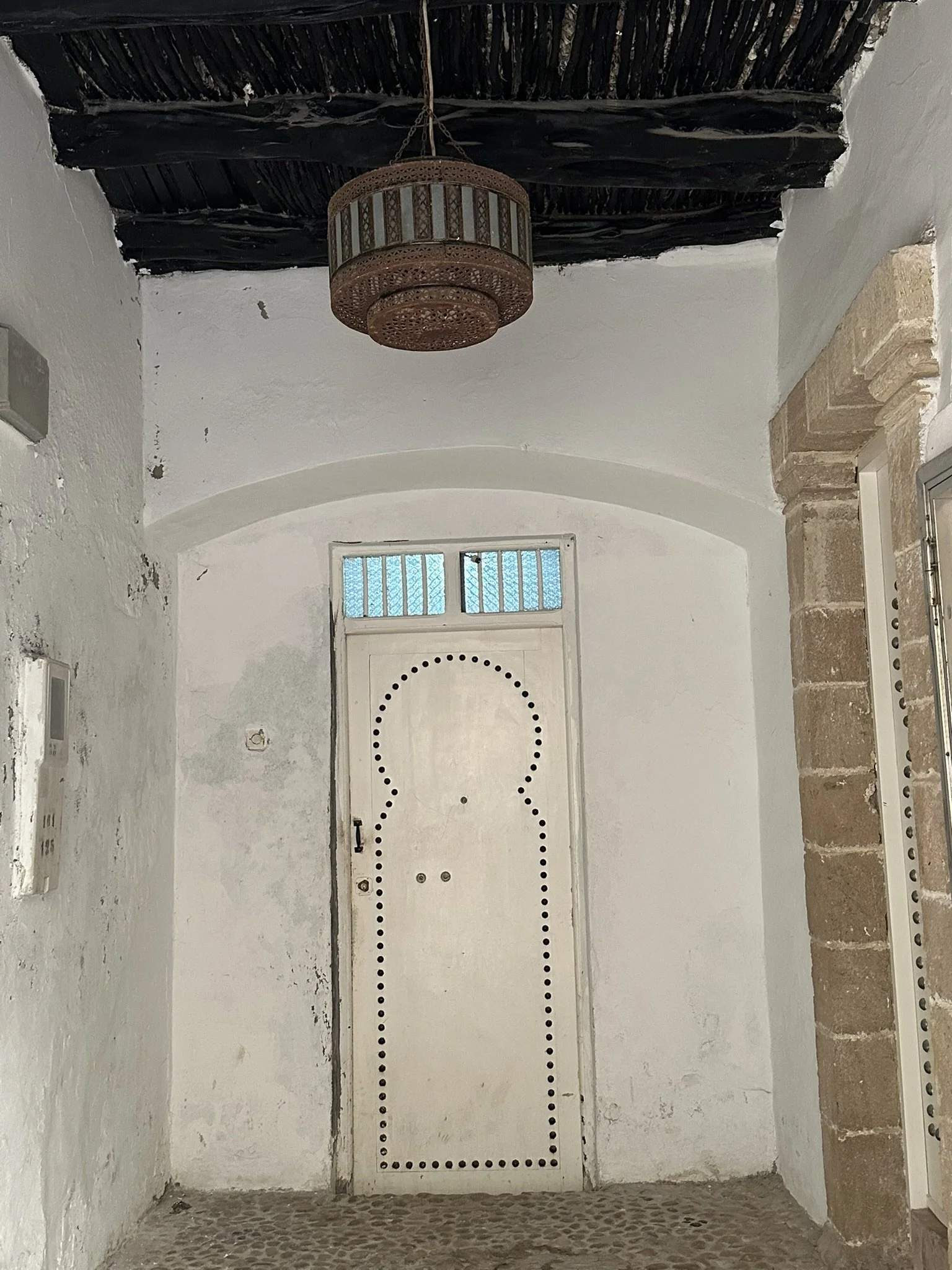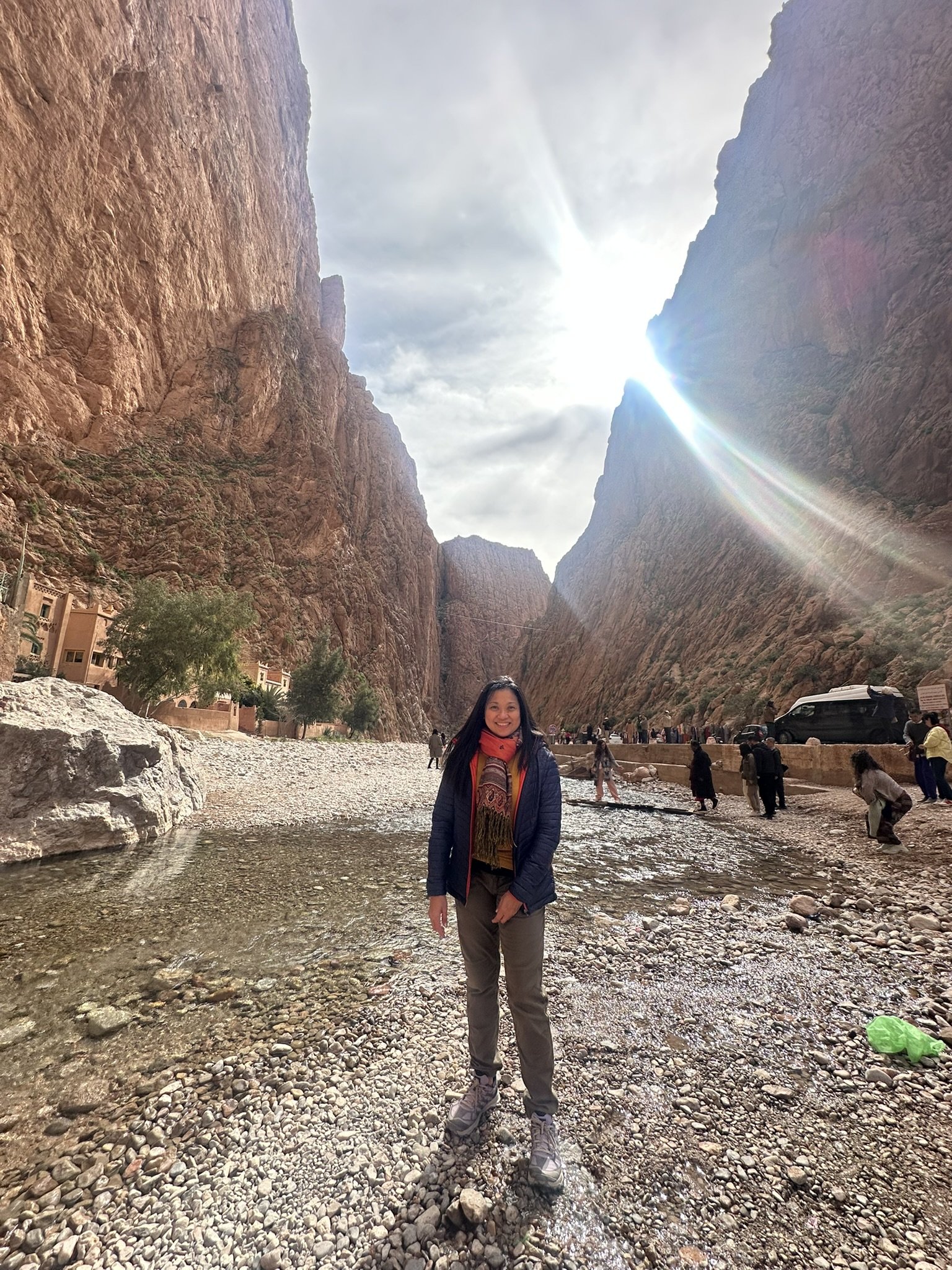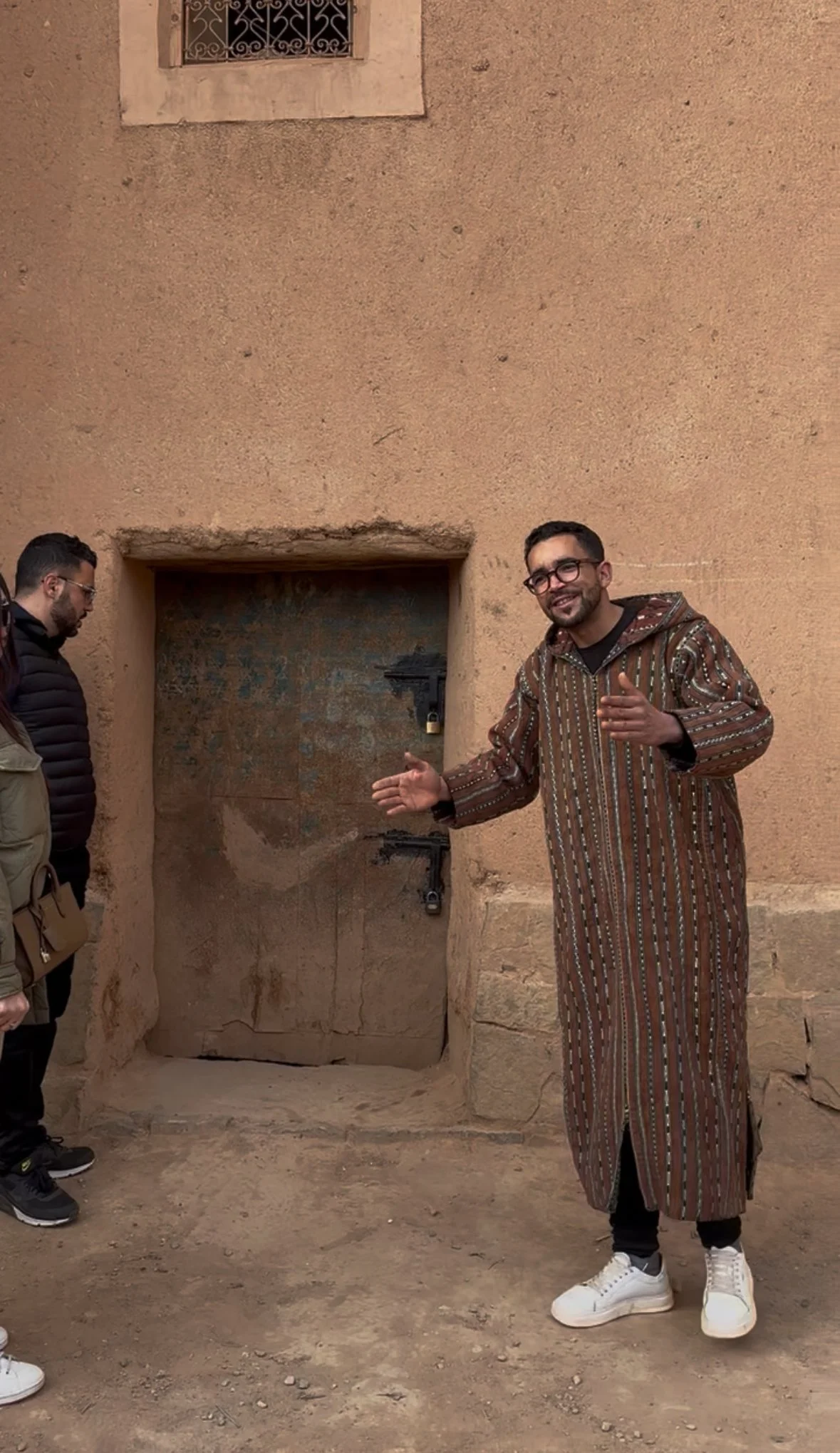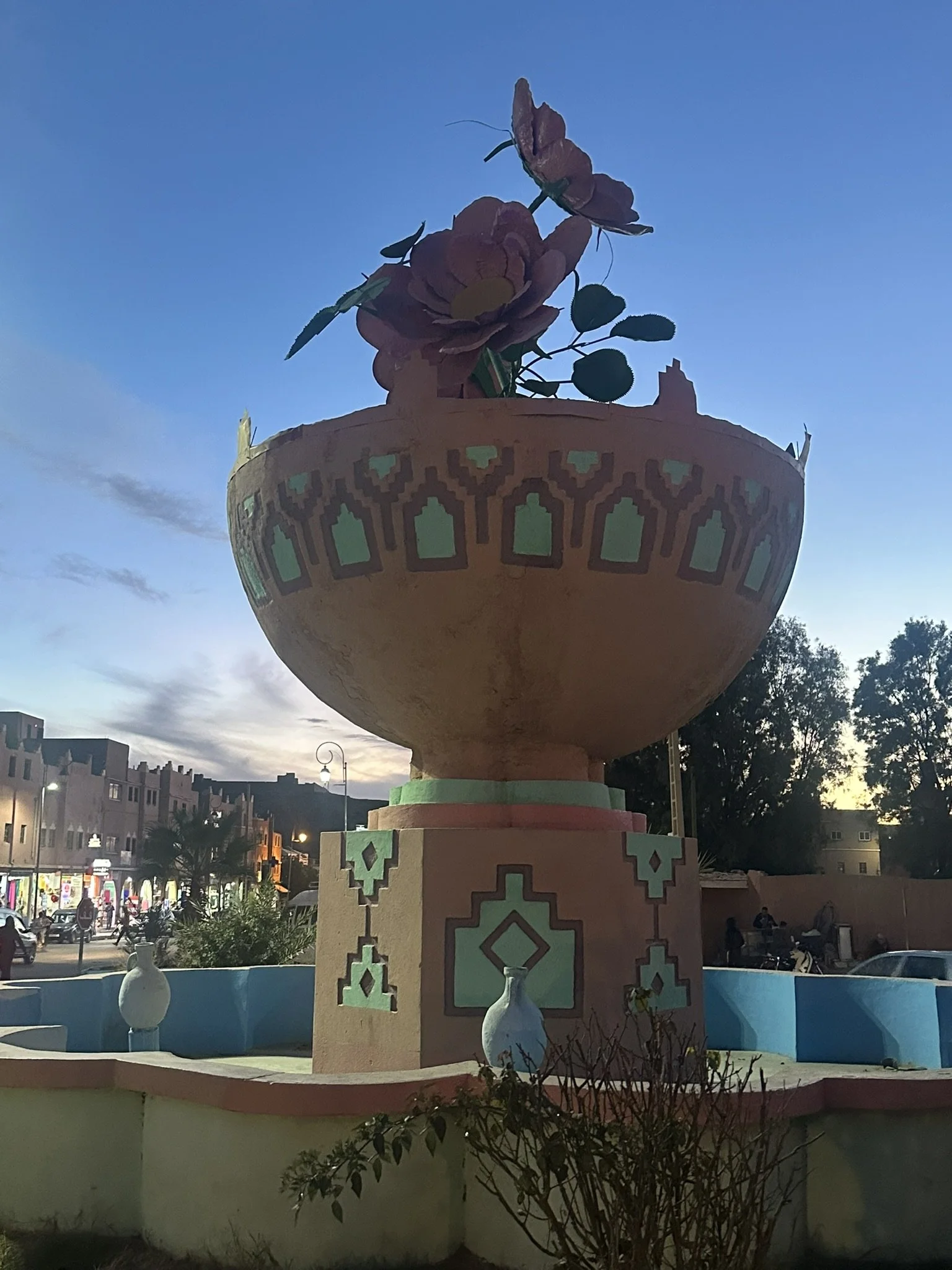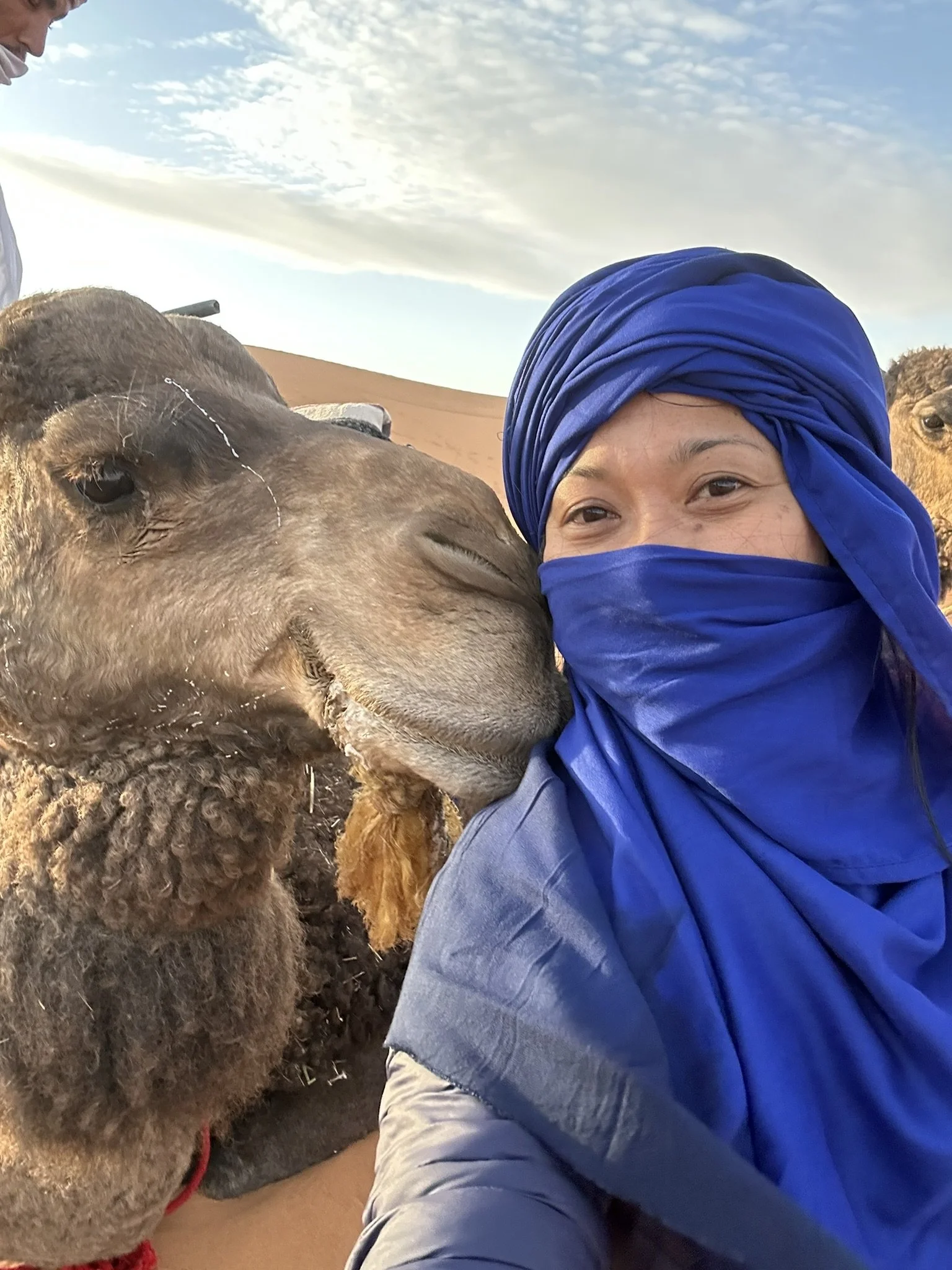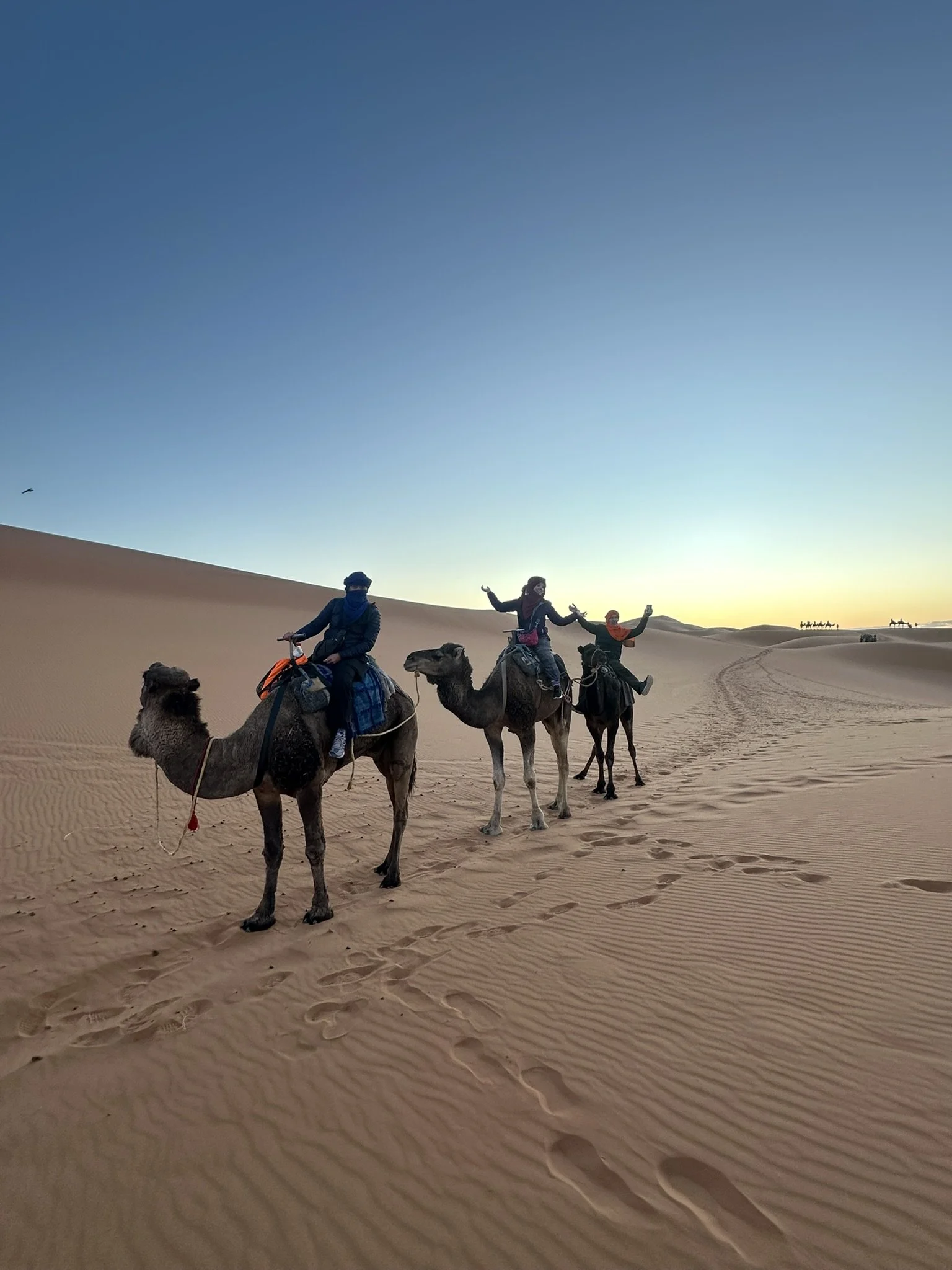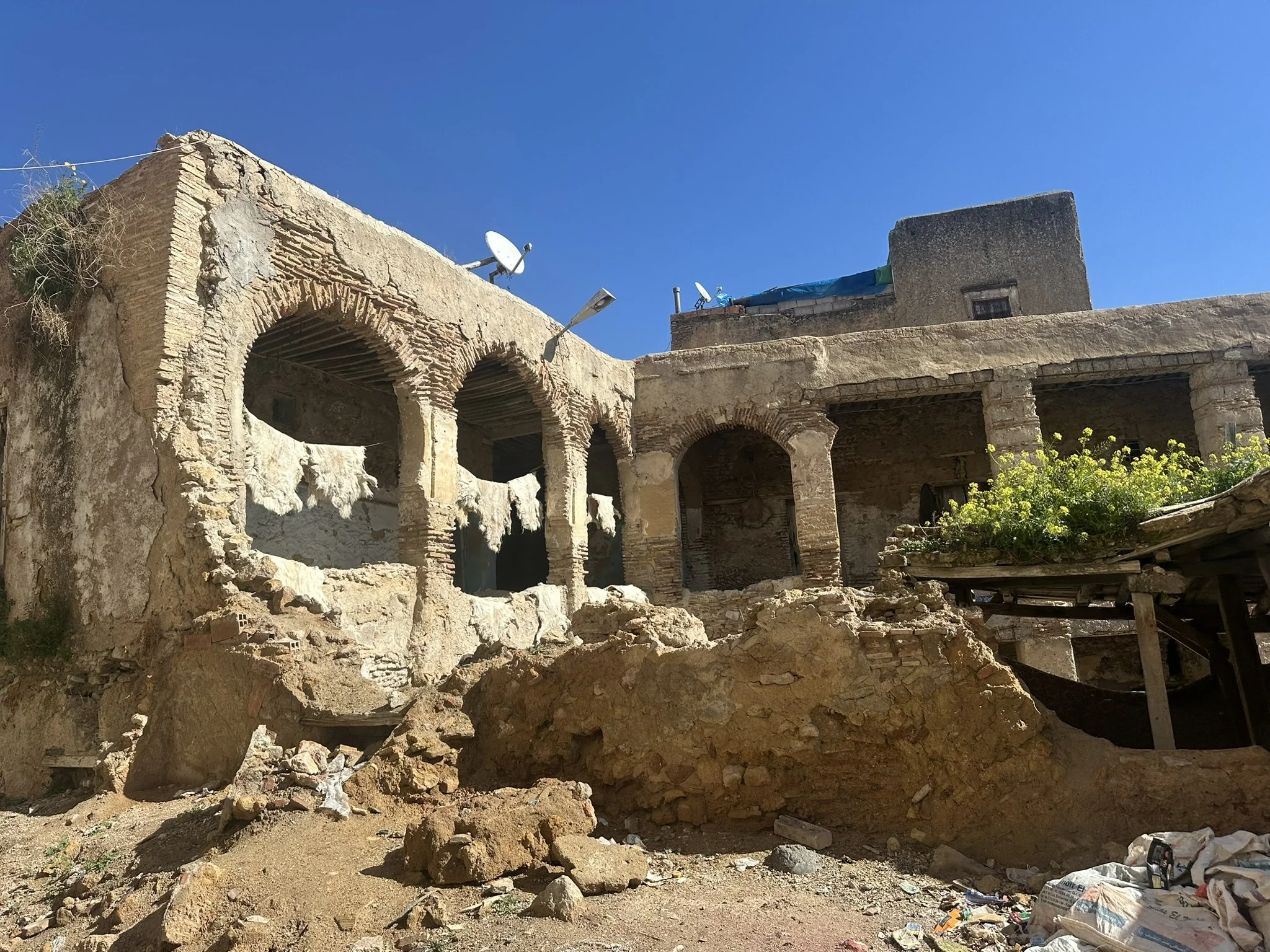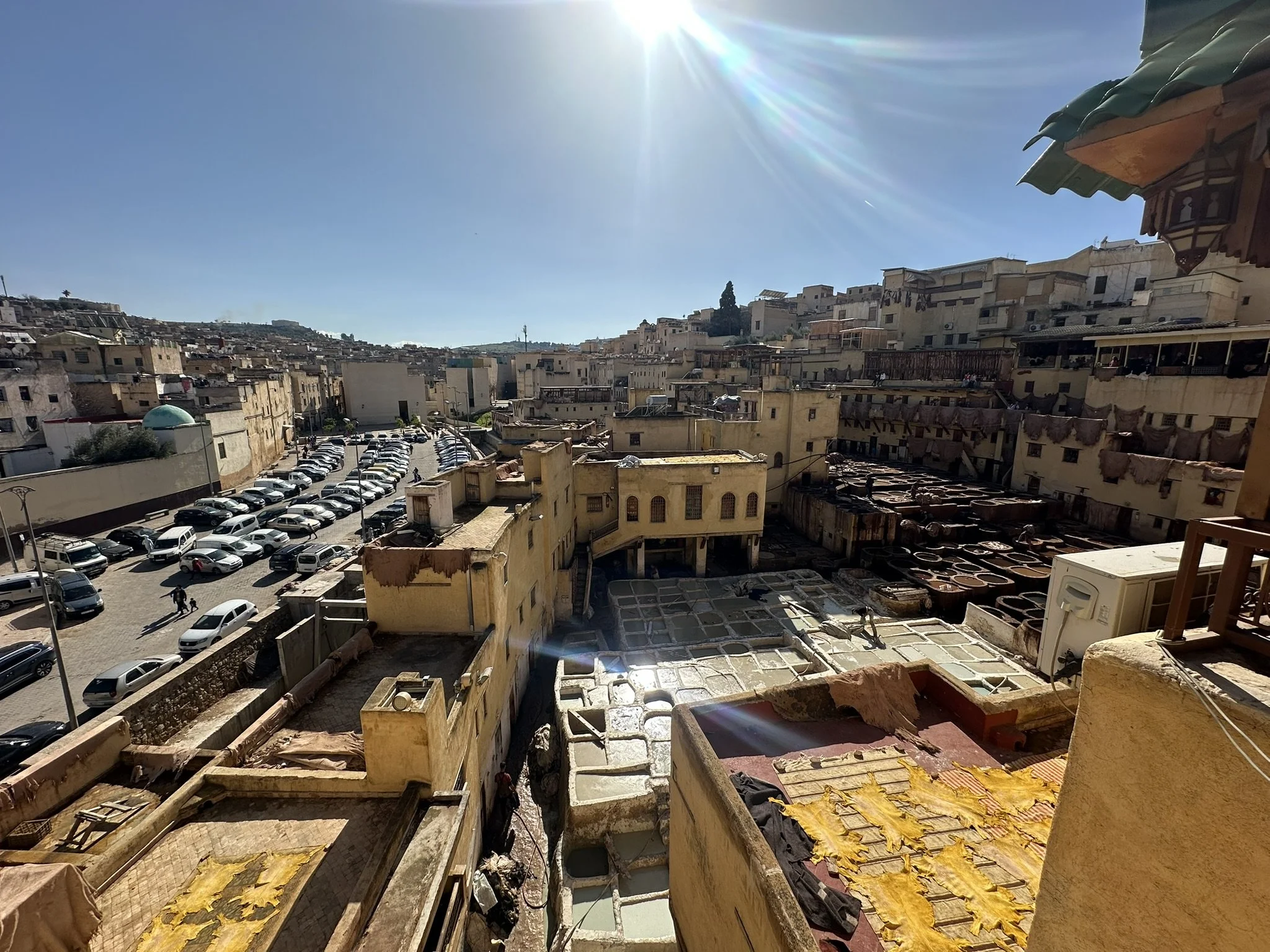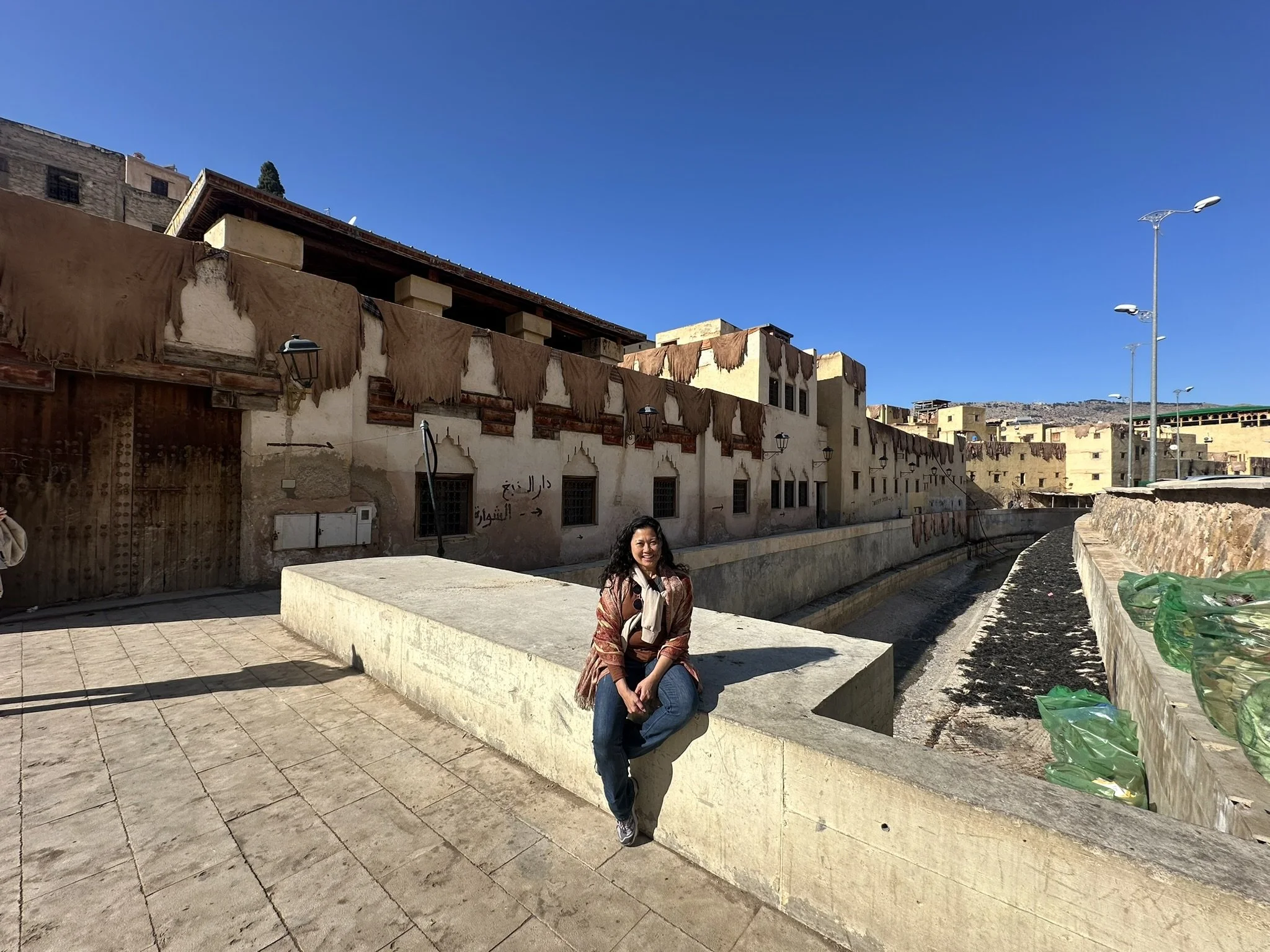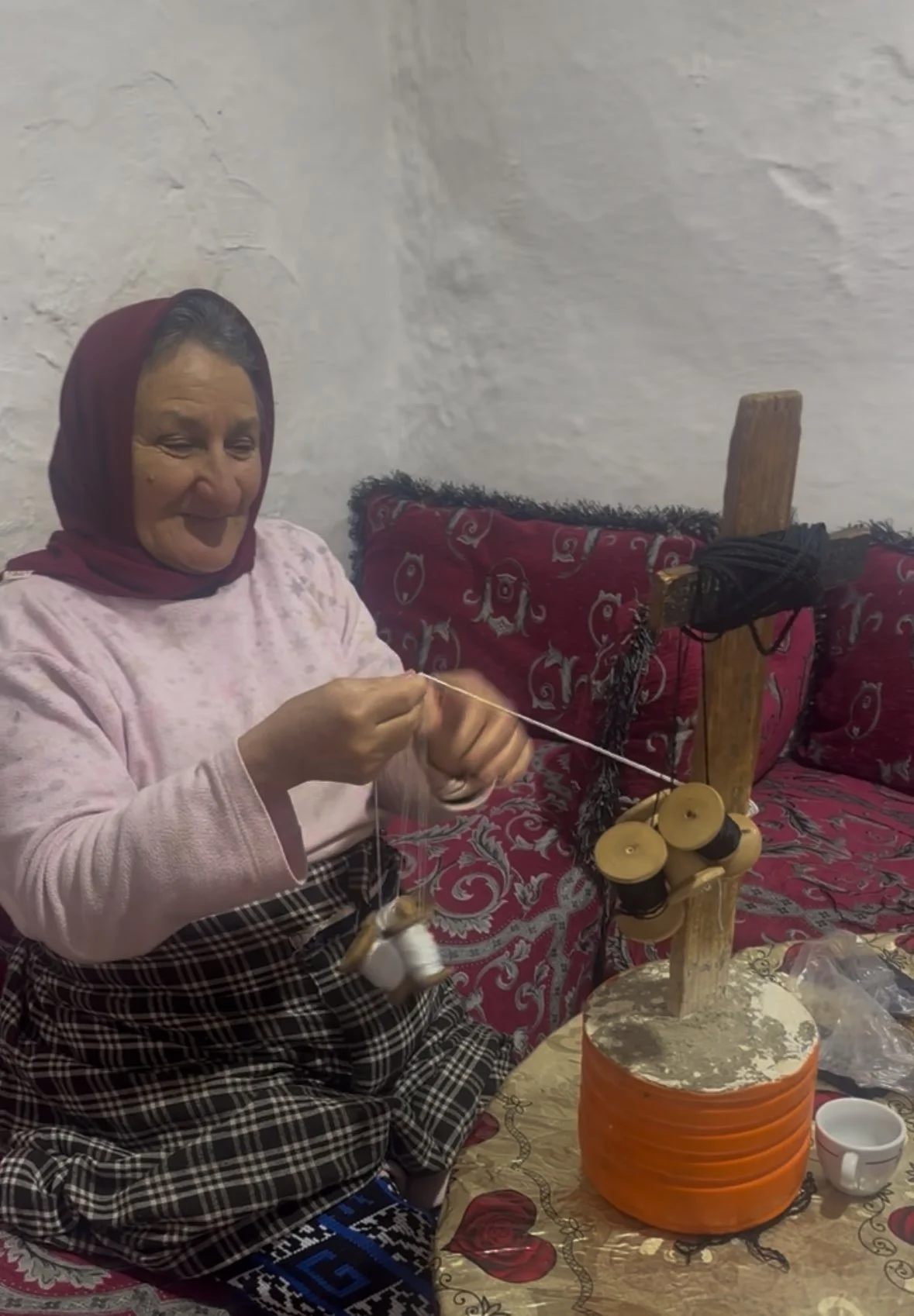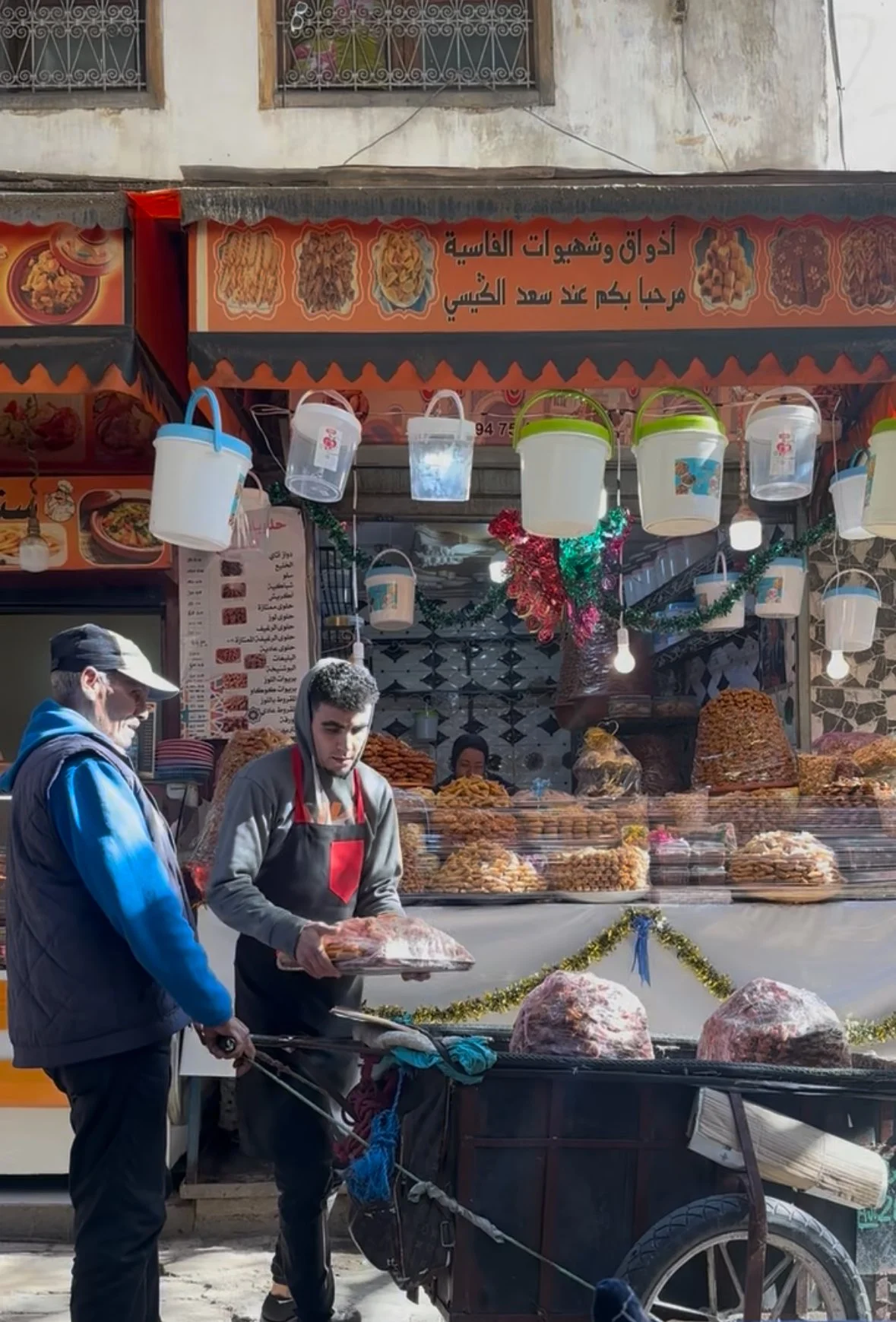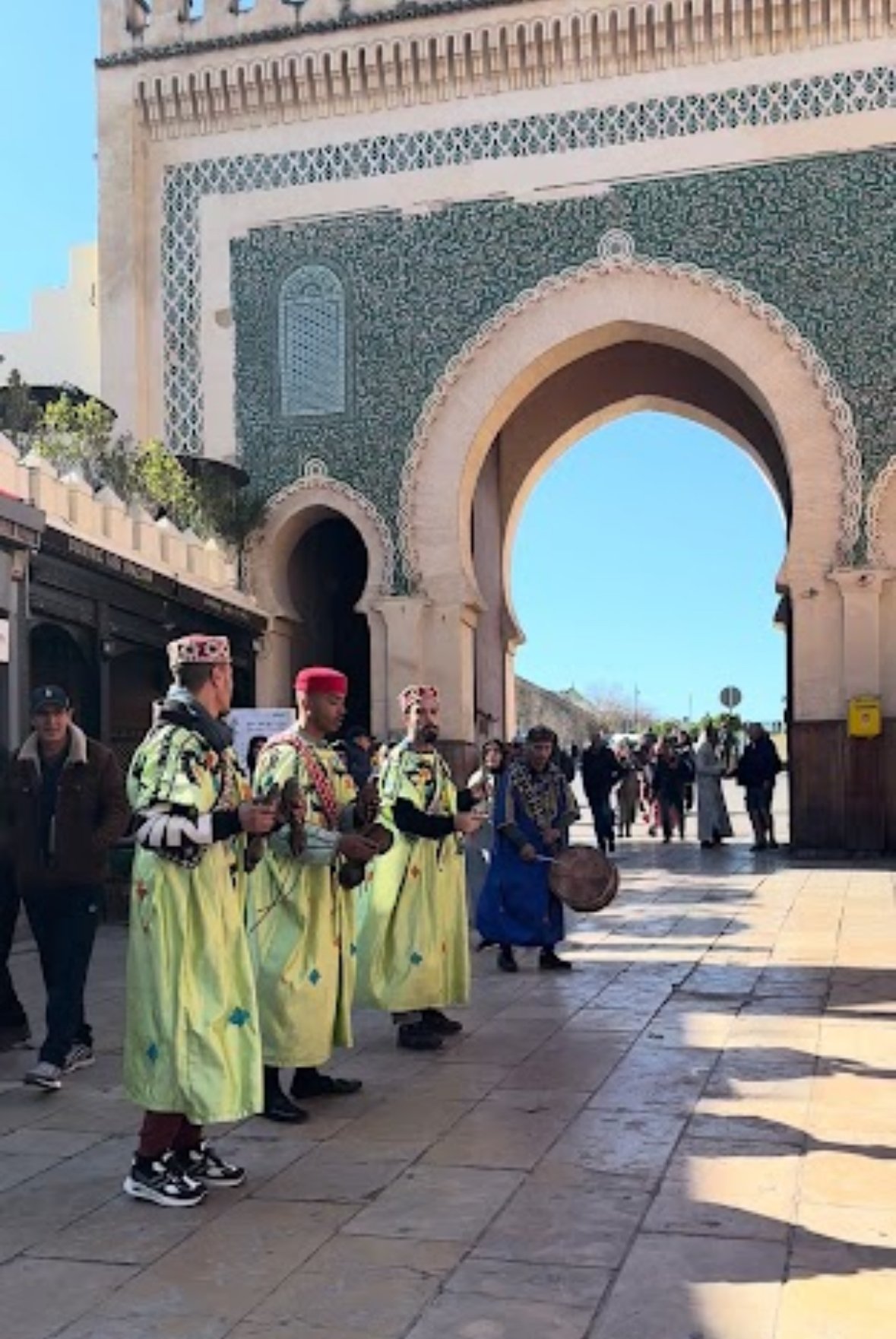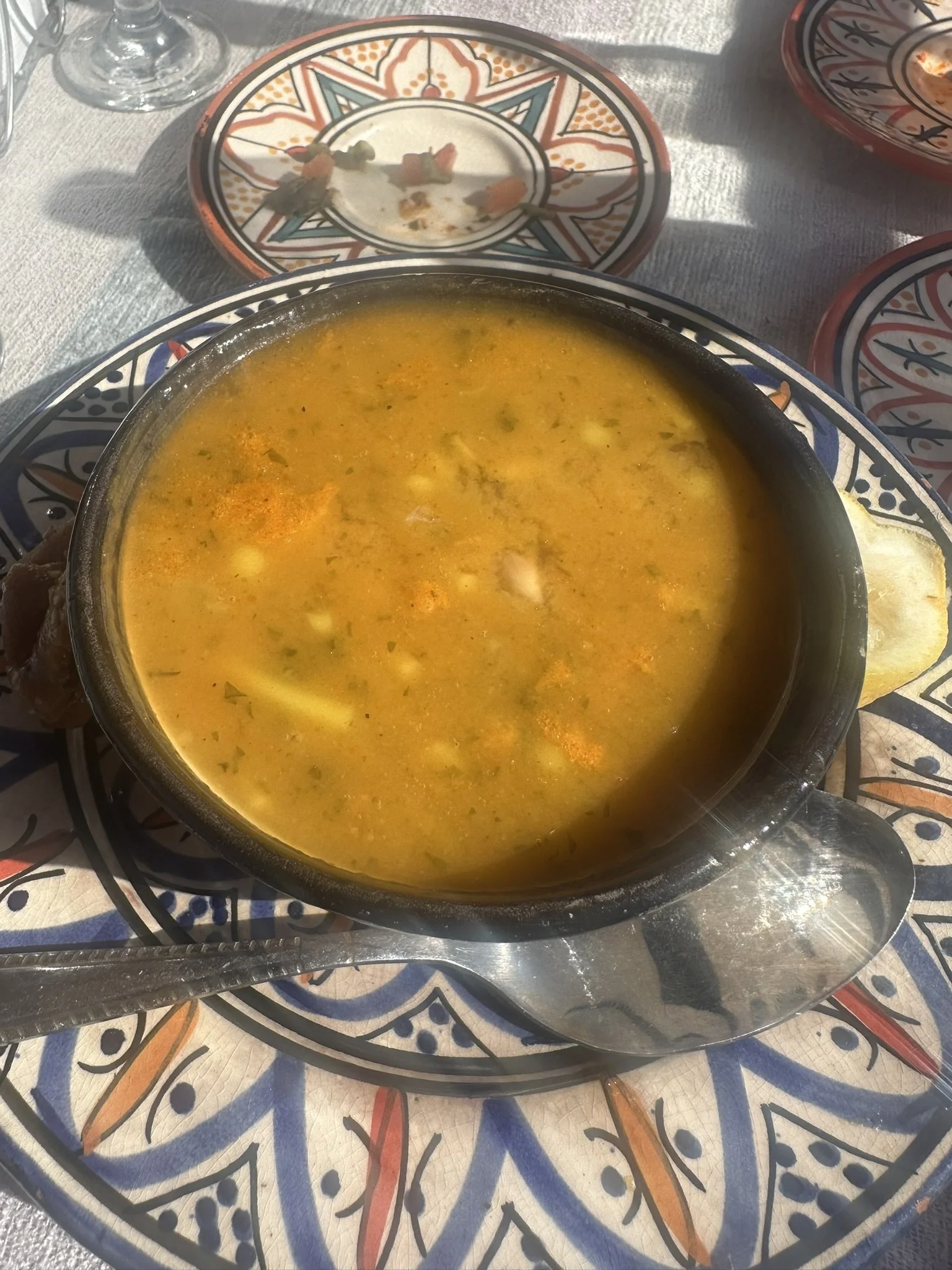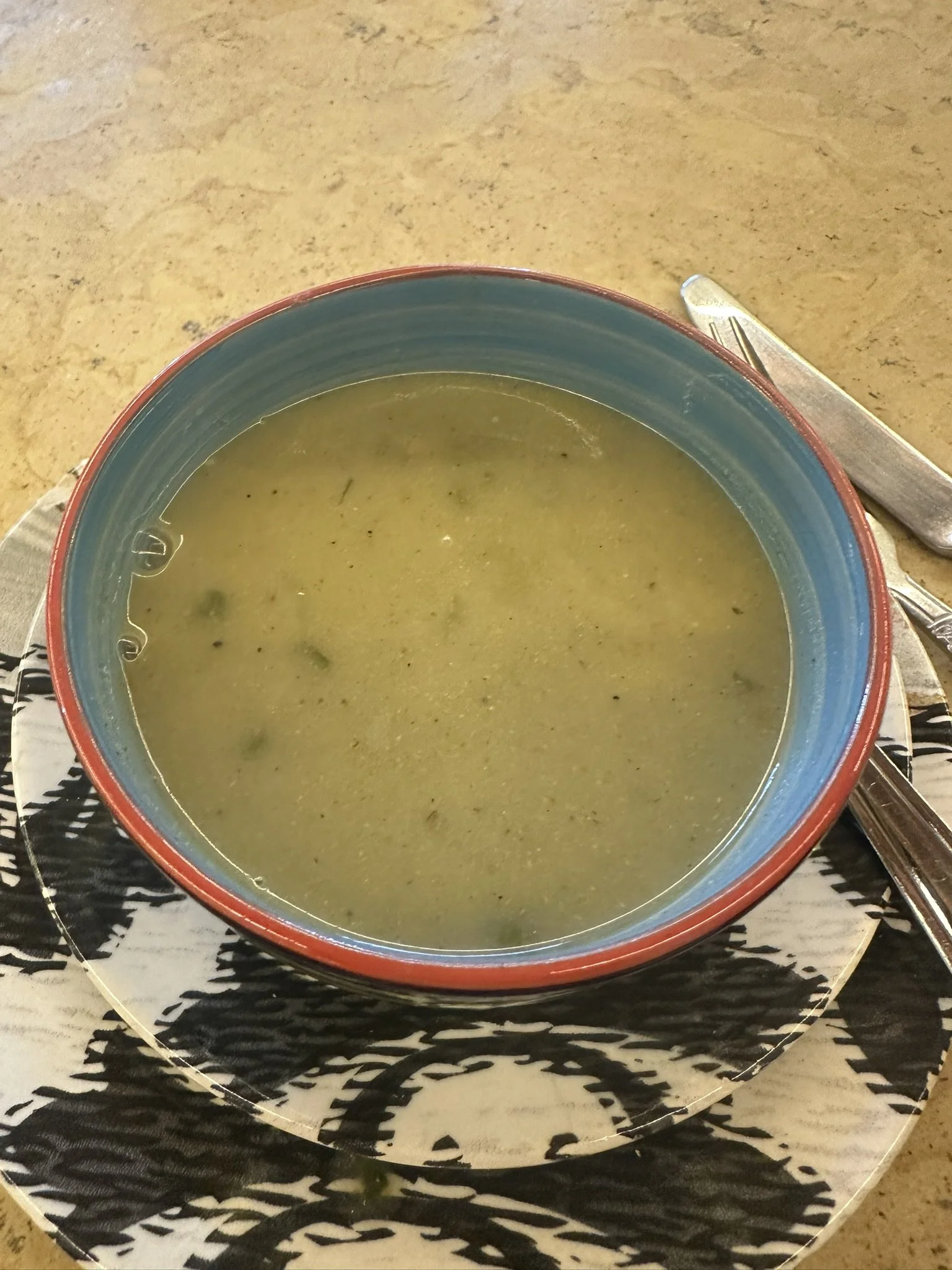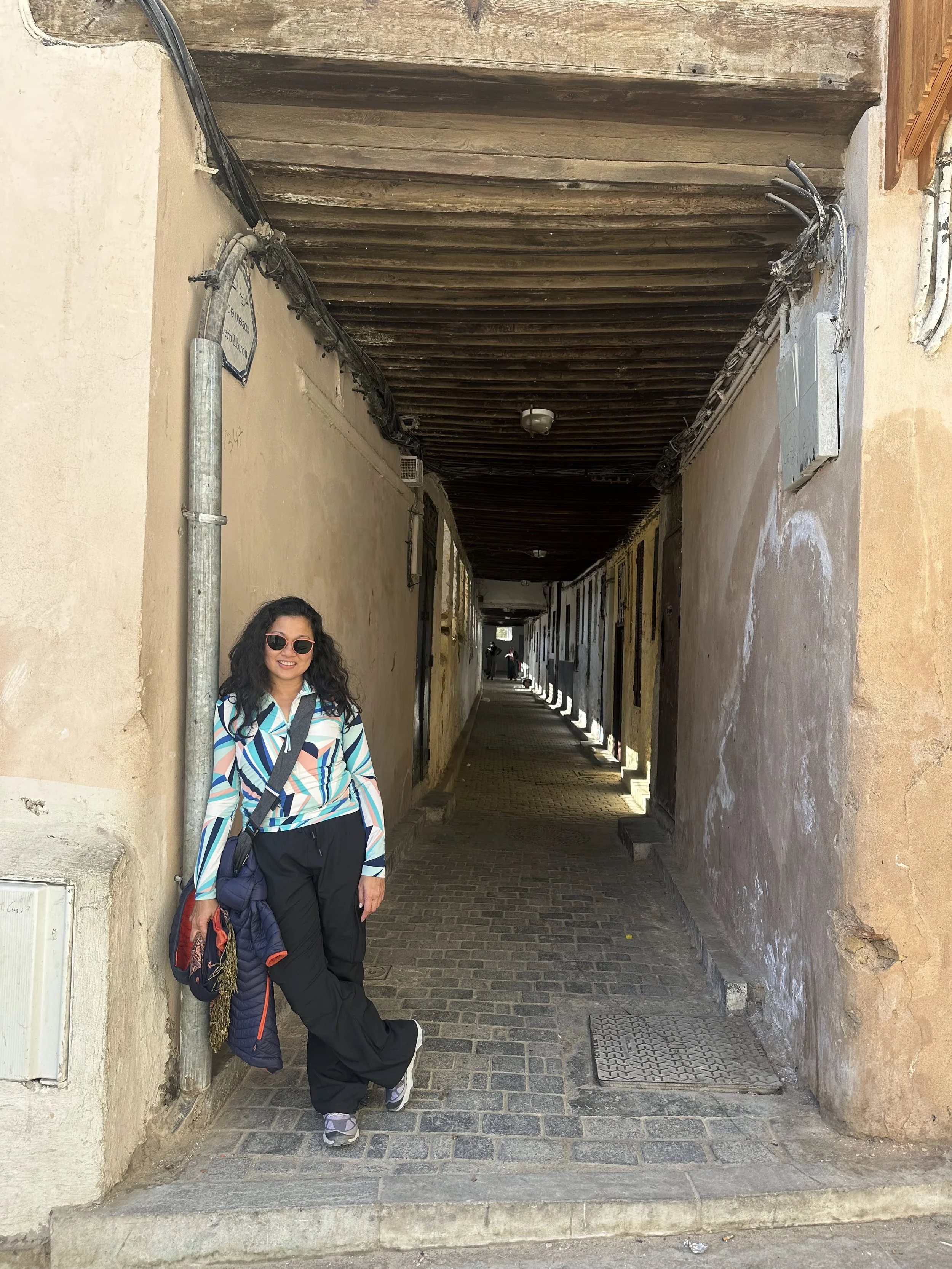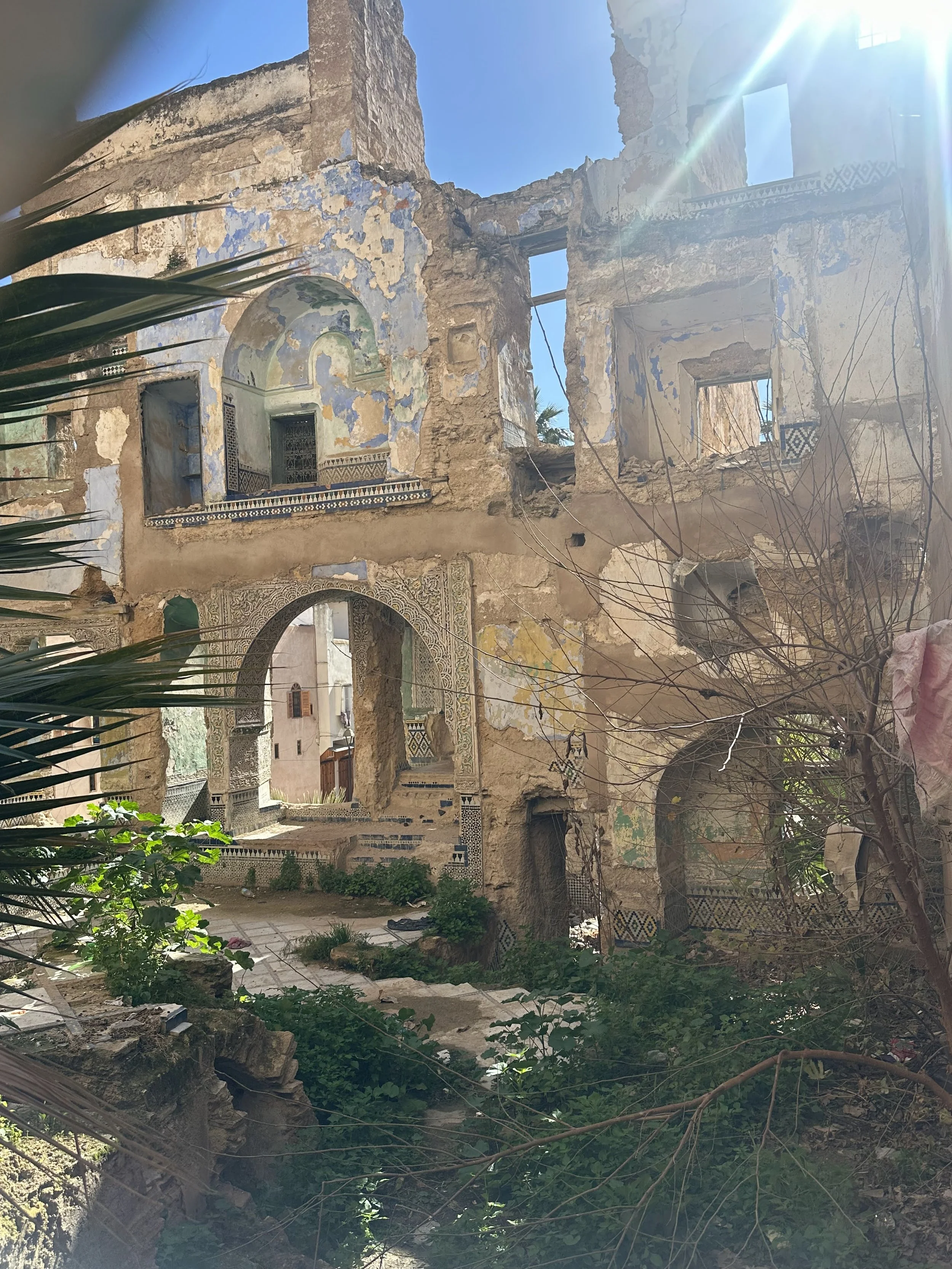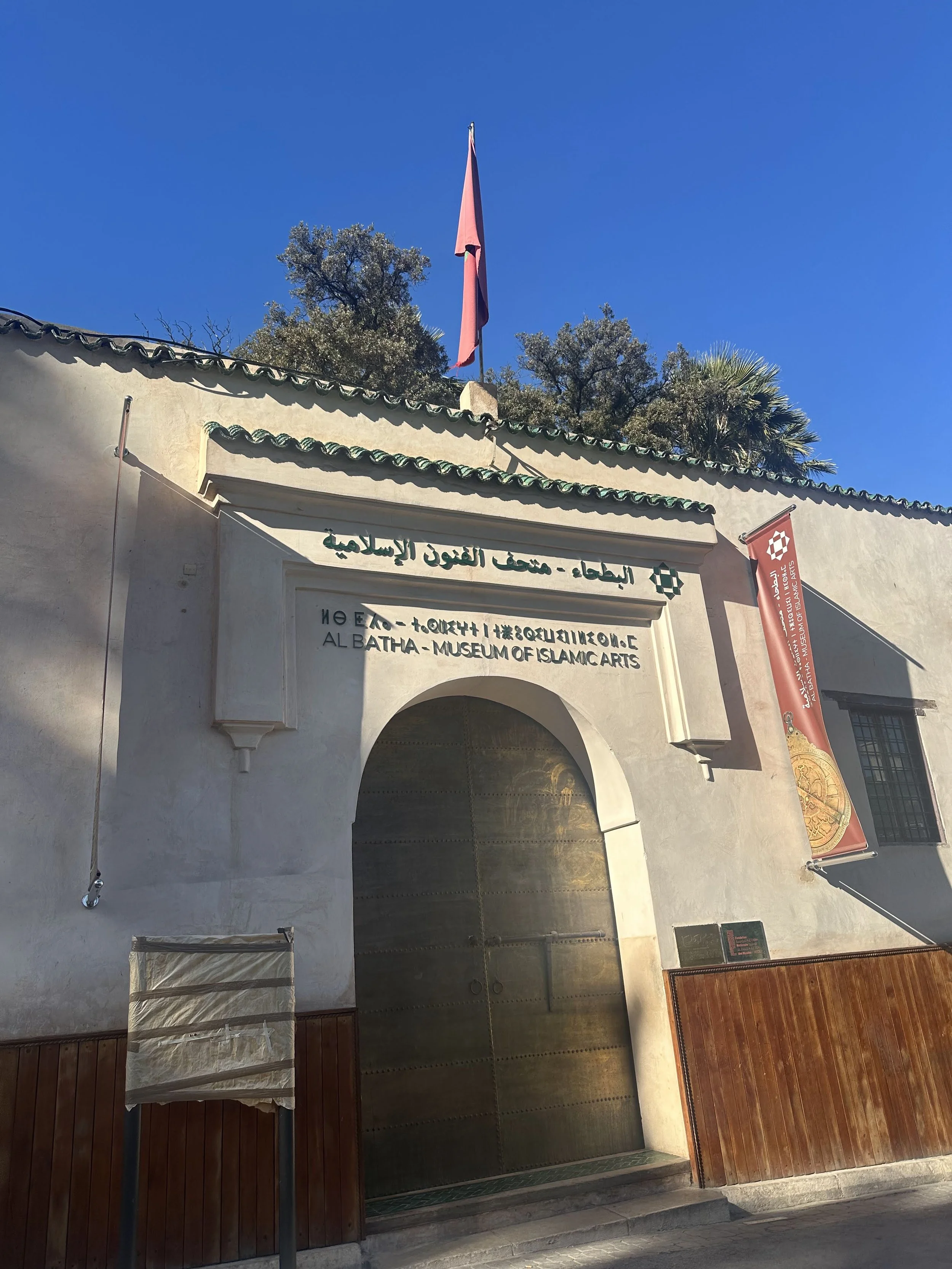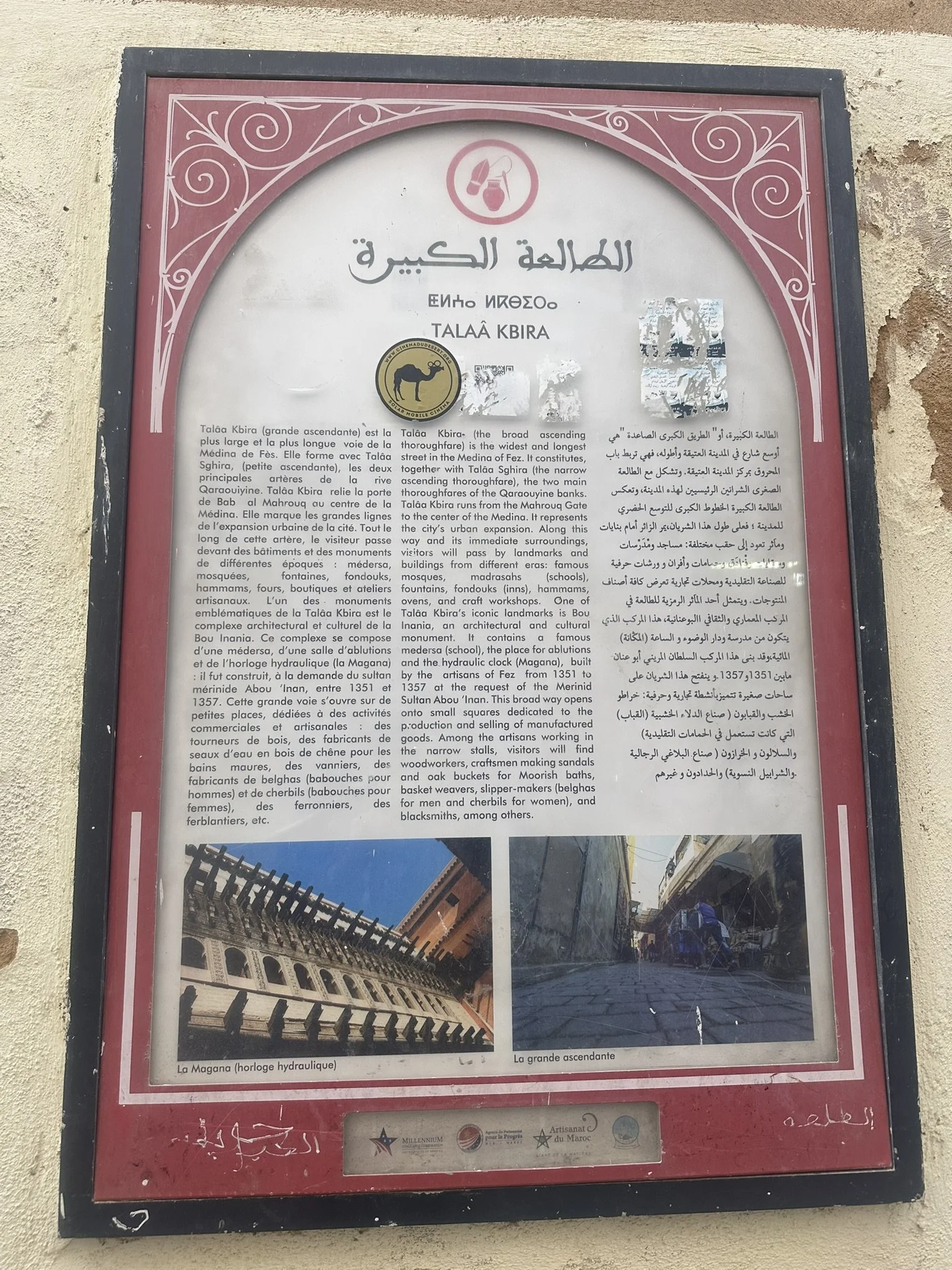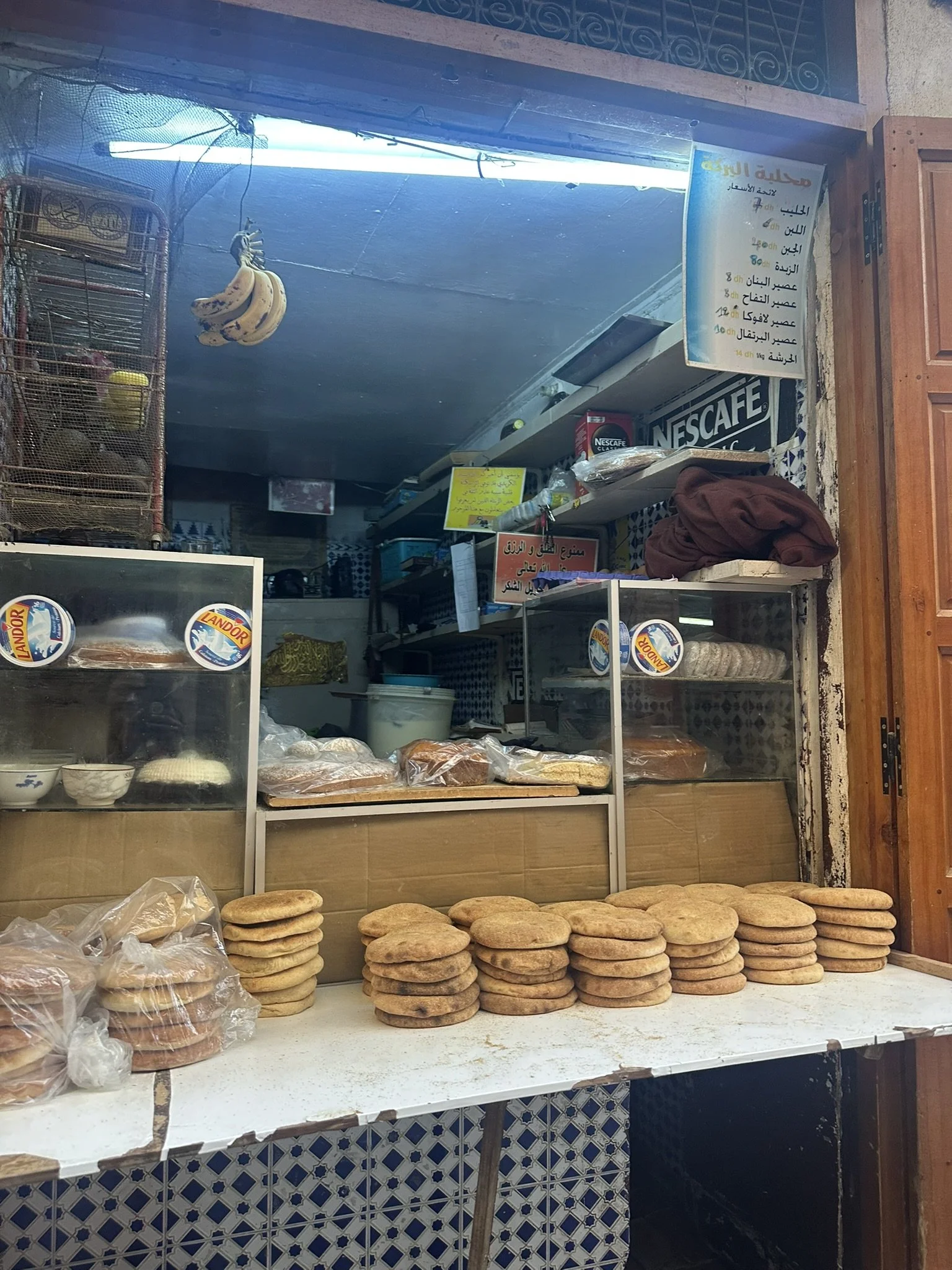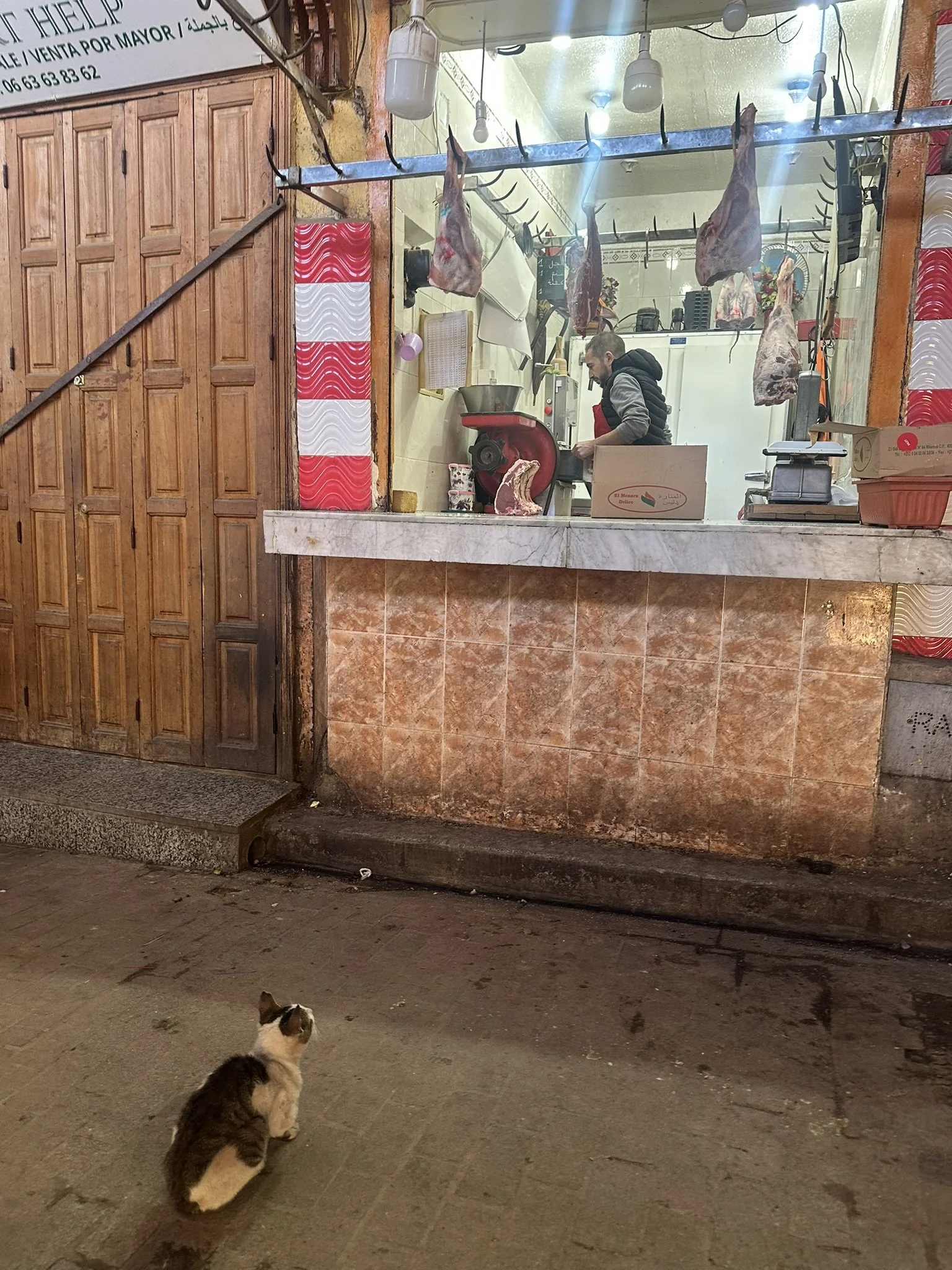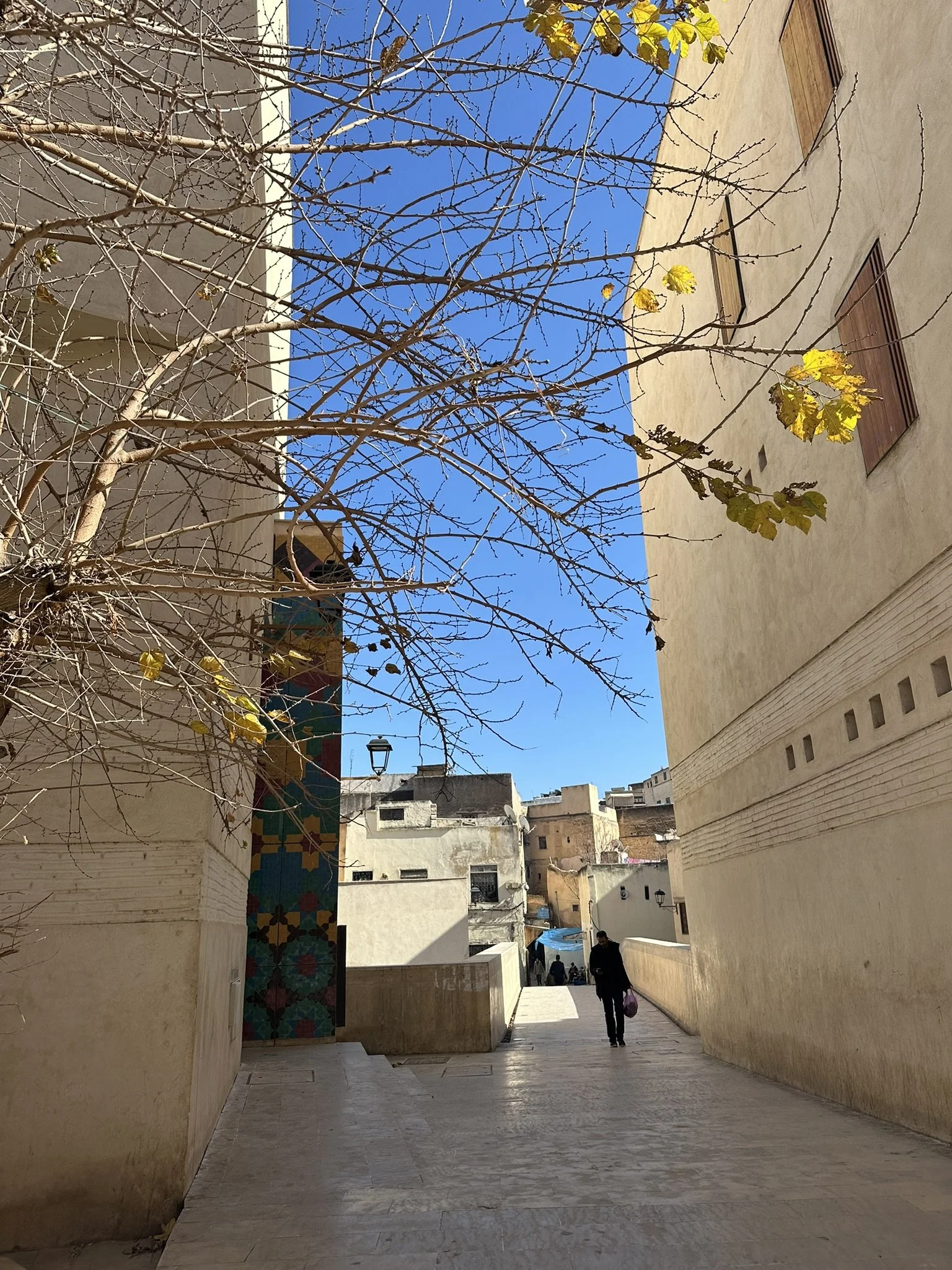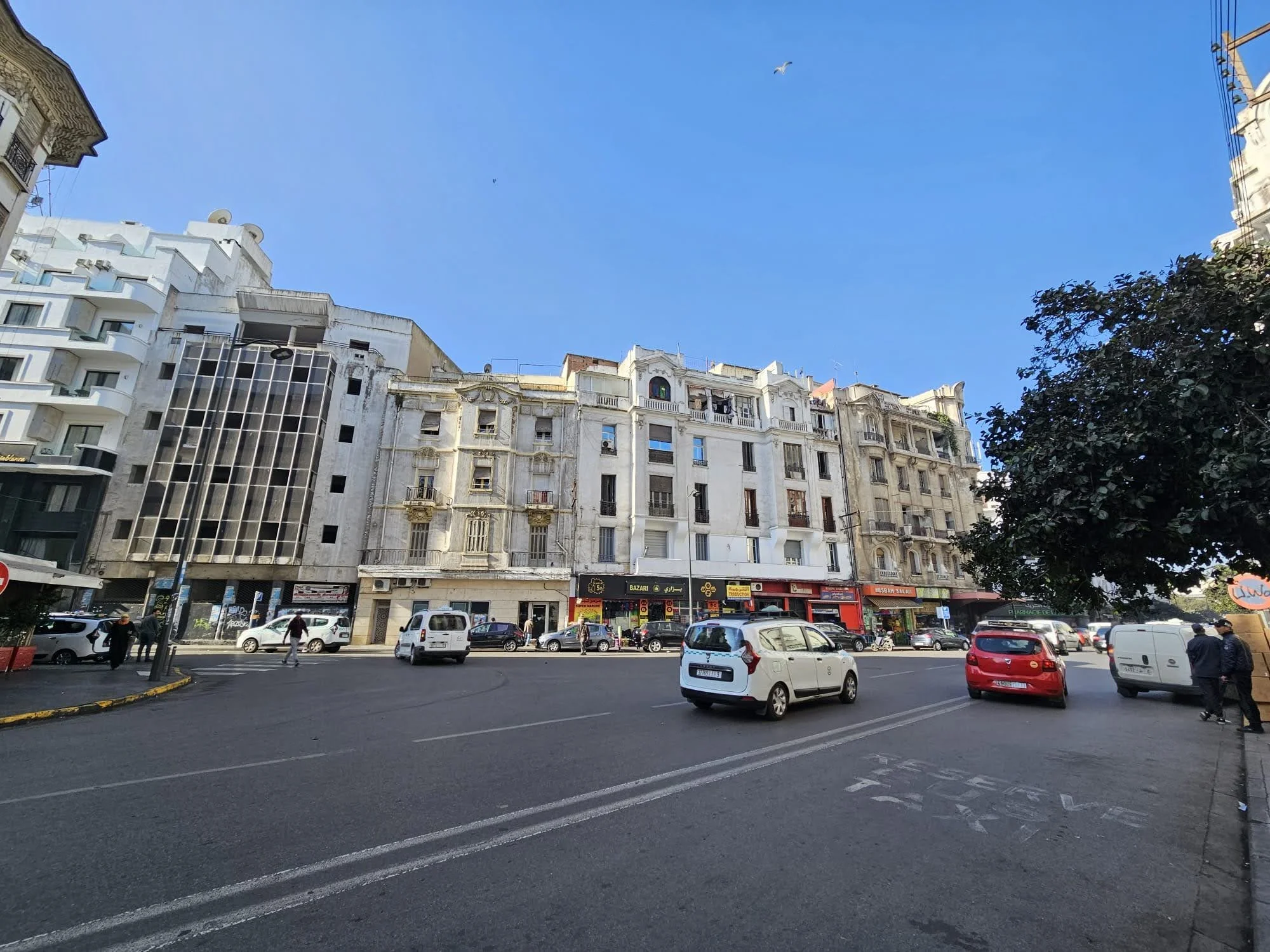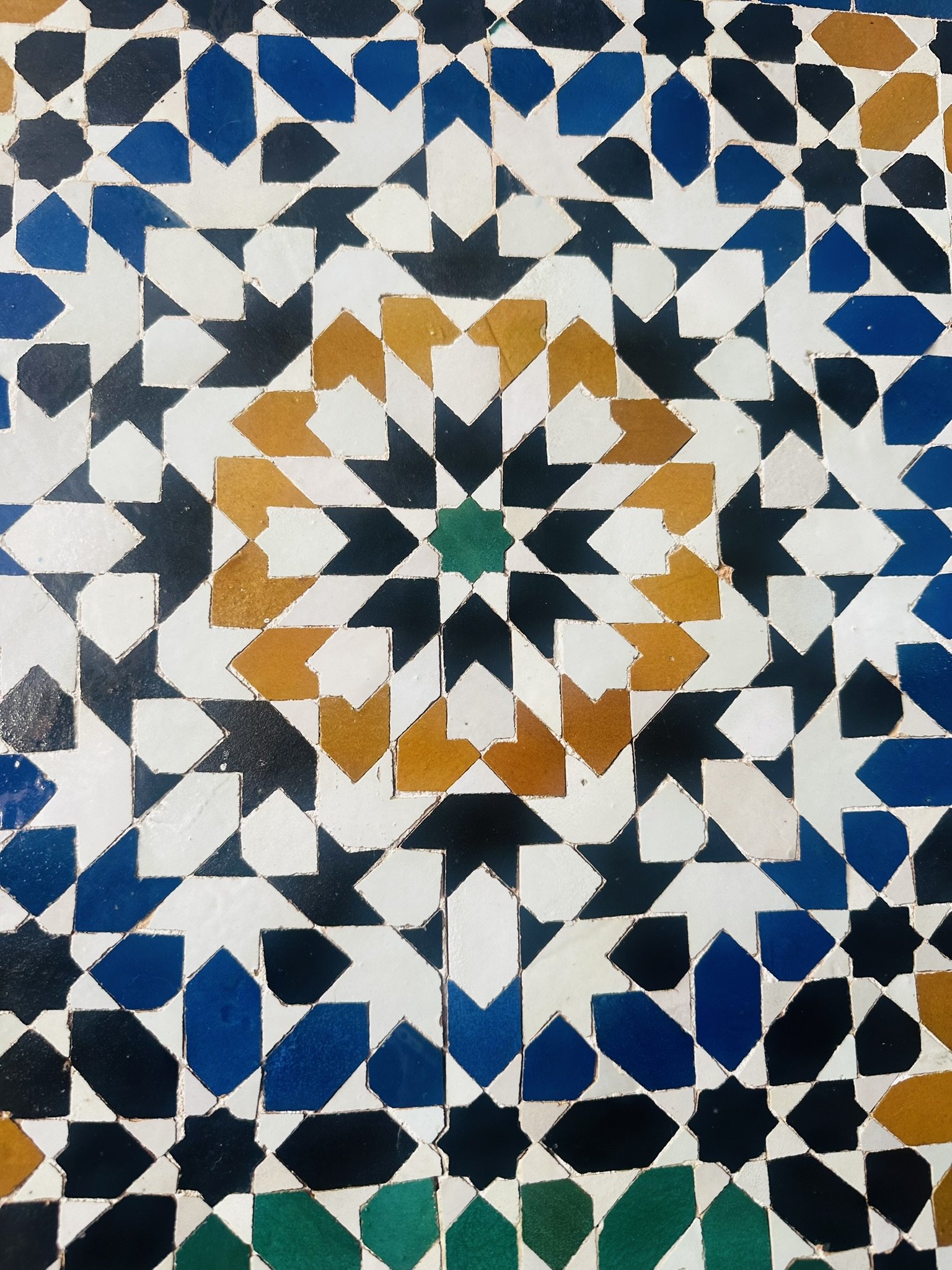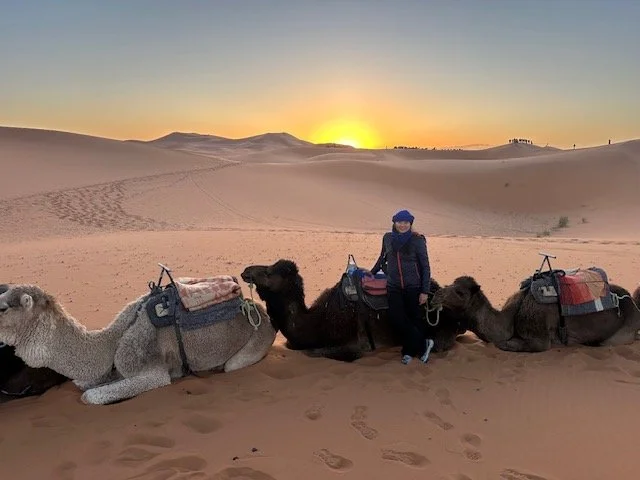Crossing the Desert Within: A Therapist’s Journey Through Perimenopause, Solitude, and Coming Home to Herself at 50
There are birthdays you celebrate with everyone else, and then there are birthdays kept to yourself.
When I turned fifty this January, I didn’t throw a party. No guest list, no cake, no decorations; just a ticket to Morocco and a quiet hope that, with some curiosity, I could find my way back to myself.
In the months leading up to my birthday, I felt restless. My calendar was packed with clients, family, errands, and endless to-do lists, but something inside felt untended. I felt a quiet ache for stillness. So I chose presence over performance.
Choosing Presence Over Performance
Turning fifty brings expectations: celebrations, photos, a sense of "making it count." Yet I felt pulled toward something quieter and more intentional. I didn't want to perform my birthday; I wanted to inhabit it.
This milestone asked for solitude. It asked for spaciousness rather than spectacle.
Morocco called to me—vibrant, layered, and soulful. A country of contrasts, ancient and modern, chaotic yet deeply spiritual. It mirrored my own midlife: complex, awakening, still unfolding.
A Therapist Travels Alone
As a therapist, I’ve spent years helping others through change, grief, and growth. I’ve also traveled a lot, but over the past 10 years, most trips have included family, friends, or my child. Those journeys were full of laughter, planning, and shared adventures.
This time, I wanted to listen for my own rhythm again, the one often drowned out by caretaking, schedules, and the constant hum of others’ needs.
In Fez, I wandered winding alleys scented with saffron, leather, and orange blossom. The air felt ancient, textured with memory. In Marrakesh, I surrendered to the pulse of the souks: vivid colors, merchant calls, and the tactile beauty of getting nowhere in particular. Every sense was awake.
On my first evening in Marrakesh, I found myself at an open-air night market. The scent of grilled kababs and cumin-laced soup drew me in. I sat at a long communal table filled with locals, families, vendors, and travelers. We all shared space beneath the lantern light. An elderly woman approached, her hand outstretched for coins. I offered her what loose change I had and, on impulse, invited her to sit with me. She hesitated, then accepted. I ordered her a meal. When her bowl arrived, something beautiful happened. The others at the table began offering her their food: bread, olives, skewers of lamb. No one said much, but the gesture spoke its own language. It was simple generosity, a reminder that nourishment is also about belonging.
I learned of baraka, a Moroccan word for blessing, a spiritual grace moving quietly through ordinary moments. I saw it in the unhurried pouring of mint tea. I saw it in strangers who gave directions with joy, and in artisans working with a meditative patience.
Days later in Fez, an elderly woman selling dates pressed a handful into my palm when I had no change. She smiled and said something my guide translated as, “May your journey be blessed.” That offering, given without expectation, stayed with me. It was as if she named what I didn’t yet realize I was seeking: permission to receive rather than to give.
This culture’s reverence for slowness, for beauty, and for the sacred woven into the everyday mirrored exactly what I was craving but hadn’t known how to claim.
Later that week, I spent an afternoon in a quiet courtyard, tracing the slow drift of sunlight over intricate zellij tiles. A fountain murmured at the center, its rhythm matching the pace of my own breath. Back home, stillness like this would have gnawed at me. Another hour slipping away with nothing to show for it. But there, time seemed to loosen its grip. The longer I remained, the more tension drained from my shoulders, my chest, and my thoughts. It was like releasing air I hadn't known I'd been holding, perhaps for years. My whole nervous system seemed to settle. I understood then that I'd been racing again, not only my body, but my mind too. I had forgotten how to be present without purpose.
In Casablanca, I sat beside the Atlantic, watching waves roll against the city’s edge, a place where modern glass met old stone, where tradition and reinvention coexisted. I saw myself reflected in that horizon, layered, evolving, in between.
And then came the desert. Riding a camel across the Sahara at sunset, I watched the sand shift from gold to rose to deep violet, each color a breath of transformation. The silence there was almost sacred, vast, and unjudging. Every inhale felt like a release, every exhale a surrender. After decades of tending, managing, and holding so much for others, I was finally holding only myself.
For once, I wasn’t guiding anyone else. I was simply being.
Perimenopause: The Unspoken Transition
Turning fifty has coincided with perimenopause, a season that remains largely invisible in public conversation yet profoundly visible in daily life. For me, it has brought restless nights, sudden waves of heat, unexpected tears, and a quiet reorganization of identity.
As a therapist, I understand that perimenopause is more than a set of symptoms. It is a biological threshold shaped by fluctuating hormones like estrogen and progesterone, which influence sleep, mood, and energy. But beneath the biology lies something deeper. This transition invites us to listen inward, to slow the pace, and to honor the body as a messenger rather than an obstacle.
For years, I have encouraged others to trust their inner signals, yet I realized how often I overrode my own. Traveling alone gave me the space to notice what I had been missing. Away from the familiar rhythms of responsibility, I could feel the subtler language of my body. I began to see when I felt grounded, when I needed stillness, and when I needed rest.
One morning in the desert, as the sun rose over the dunes, I noticed how the air shifted from cool to warm, a gradual awakening that mirrored my own. My body, too, was moving through a kind of sunrise. It was no longer asking me to push through but to pay attention.
Perimenopause can feel disorienting, yet it is also deeply wise. It strips away what no longer fits and illuminates what remains true. I began to see that my body was not betraying me. It was guiding me toward a slower, steadier form of knowing.
In many ways, this stage is not an ending but a recalibration. It calls us to reimagine energy, intimacy, creativity, and rest. It asks for new rhythms, gentler rituals, and a more compassionate dialogue with ourselves.
Sitting beneath the vast desert sky, I understood that what I had once called loss was actually space. Space to become. Space to listen. Space to begin again.
Relationships in Transition
This stage of life reshapes more than hormones. It reshapes relationships. It changes how we love, listen, and connect. Energy shifts. Patience stretches and sometimes thins. Even desire, both emotional and physical, asks to be redefined.
Many women I work with describe a longing for clarity and solitude, a need to reclaim parts of themselves that have been poured into everyone else. I recognize that same ache in myself. For years, I have offered care, guidance, and presence to others, yet I have often forgotten to extend the same tenderness inward.
In the stillness of the desert, this truth rose quietly. I began to see how easily I disappear into the needs of others, how quickly I respond, soothe, or fix. For much of my life, I have equated love with availability. But what if love at midlife is not about constant giving? What if it is about honest boundaries and deeper authenticity?
Perimenopause, in its quiet wisdom, has become a kind of recalibration. It asks me to love from fullness rather than depletion, to show up in a relationship without losing myself in the process. It is not a withdrawal. It is restoration.
I thought of the women I know and the women I guide, many of them standing at similar crossroads. They speak of marriages evolving, friendships shifting, children leaving, and parents aging. Every relationship asks to be reexamined through a new lens of truth. Some bonds deepen. Others drift. And in that movement, something inside us learns to stand more firmly on its own feet.
What surprised me most was how solitude softened me. Time alone did not make me colder. It made me clearer. When I returned to connection, I came with more presence, less resentment, and a steadier heart. When we show up more authentically, the more whole we become, the deeper our relationships can grow.
The desert taught me this:
When we stop overextending,
love does not vanish.
It breathes.
It grows roots in quieter soil.
Healing, Regulation, and Renewal
Morocco reminded me that healing rarely unfolds in straight lines. It is not always quiet or serene. Sometimes it arrives through the senses, through sound and scent and color, through the pulse of a place that insists you come back to your body.
In Marrakesh, I witnessed how sensory beauty itself can settle the nervous system. The rhythm of footsteps on stone, the warmth of lantern light at dusk, and the laughter that echoed through courtyard walls brought me into the present moment again and again. Healing does not always demand stillness. Sometimes it calls for awe.
Teaching nervous system work has made me alert to regulation in unexpected places, and there it appeared naturally. The call to prayer drifting across rooftops, the steady pattern of artisans at work, the soft rustle of palms in evening wind. All of it offered pattern and repetition, the body’s native language of safety. Our bodies recognize steadiness long before our minds do.
One afternoon, sitting beside the fountain in a riad garden, I felt tears rise without reason. They came like rain after drought, unexpected but necessary. That release reminded me that regulation is not about holding tight. It is about allowing the body to complete what it has been holding. The fountain’s steady murmur seemed to say, “Keep flowing.”
There were moments of fatigue, of loneliness, and the sharp awareness that fifty marks both endings and beginnings. But even those moments felt sacred. They belonged to the recalibration, to the slow exhale that follows years of bracing.
I returned from Morocco with a renewed understanding of what healing asks of us. It's less about repair and more about remembering. It is a return to rhythm, to wonder, to the small sensory anchors that remind us: we are safe, we are alive, and we are capable of starting again.
Coming Home Changed
I left for Morocco carrying quiet exhaustion, the kind that seeps in when you’ve been everyone’s anchor for too long. I came home softer, but clearer, less interested in proving and more attuned to simply being. When I returned home, I didn't feel "finished." I felt in process. Morocco wasn't an escape. It was an initiation. I came back with a clearer understanding of what my body and spirit need now: rest, creativity, connection, and space.
In my practice, more women than ever are seeking therapy and coaching during this same life season. They talk about sleepless nights, irritability, identity shifts, and a longing for alignment. Together, we work on nervous system regulation, relationship repair, and reauthoring the story of who they're becoming.
This stage isn't just hormonal. It's transformational.
Reflections for You
If you're coming up on a birthday that feels big, or you're in the middle of perimenopause and everything feels off, stop for a second and notice what you're telling yourself about this time.
What would it mean to put yourself first, even just once?
Where in your life are you hungry for more room to breathe, to rest, to wonder about things?
What might you hear if you gave yourself permission to step back and actually listen to what's true for you right now?
The stories we tell ourselves about midlife, about what we're supposed to be, what we're losing, what's ending, those stories shape everything. What if this moment is telling a different story than the one you've been handed?
When Morocco Isn't an Option: Coming Home to Yourself
Solo international travel is a privilege not everyone has. Time, cost, caregiving responsibilities, health limitations, or life circumstances may make it impossible. Yet the invitation to mark this transition intentionally belongs to everyone.
Women I work with have created their own "pilgrimage experiences" closer to home:
A Weekend Solo Retreat: Rent a cabin an hour away or book a local hotel room. Bring books, journals, art supplies—whatever helps you listen inward. The change of space matters more than the distance traveled.
A Day of Pilgrimage: Visit a state park, neighboring town, or museum you've never explored. Go alone. Notice everything. Allow yourself to get a little lost. Eat lunch somewhere unexpected. Take the long way home.
Micro-Rituals at Home: If you can't leave, create a sacred space where you are. Light candles at dusk. Take baths with intention. Wake before your family and sit in silence with a cup of coffee. Journal at a different café each week.
Monthly "Appointments with Yourself": Block three hours each month as non-negotiable time. Walk, create, rest, or sit. Protect it like you would a doctor's appointment because it is that important.
Sensory Anchors: Cook a meal from a cuisine you've never tried. Visit a cultural center or place of worship different from your own. Attend a concert or art exhibit alone. Let your senses guide you back to your body and out of your overthinking mind.
The location matters less than the intention: to step outside your usual role, to listen deeply, and to honor this transition as significant.
Not every woman can go to Morocco. But every woman can create a threshold moment; a pause that honors who she's becoming.
Closing Thought
Turning 50 in Morocco taught me that midlife isn't about decline. It's about distillation: refining what matters, shedding what doesn't, and celebrating who we've become.
From the vibrant markets of Marrakesh to the stillness of the Sahara, I learned that perimenopause, like travel, invites us to navigate uncertainty, listen deeply, and trust that every detour holds meaning.
Whether your pilgrimage takes you across an ocean or across town, whether it lasts a week or an afternoon, the invitation is the same: honor this transition as worthy of attention, ritual, and reverence.
It's not an ending. It's an arrival I'm still learning to inhabit, one breath at a time. May we each find our own form of baraka, the quiet blessings that come when we dare to listen inward and trust the journey home.
Step fully into this chapter with presence. Pause, notice your rhythm, take a walk, journal, or simply sit in quiet. These small acts are invitations into your next chapter, gentle ways to honor yourself and the life you’re becoming.
And if you’d like guidance navigating perimenopause, midlife transitions, or creating your own rituals of presence, I invite you to a complimentary 15-minute consultation.
Together, we can explore your rhythms, uncover what nourishes you, and support your next steps on this journey. Book your free 15-minute consultation.

